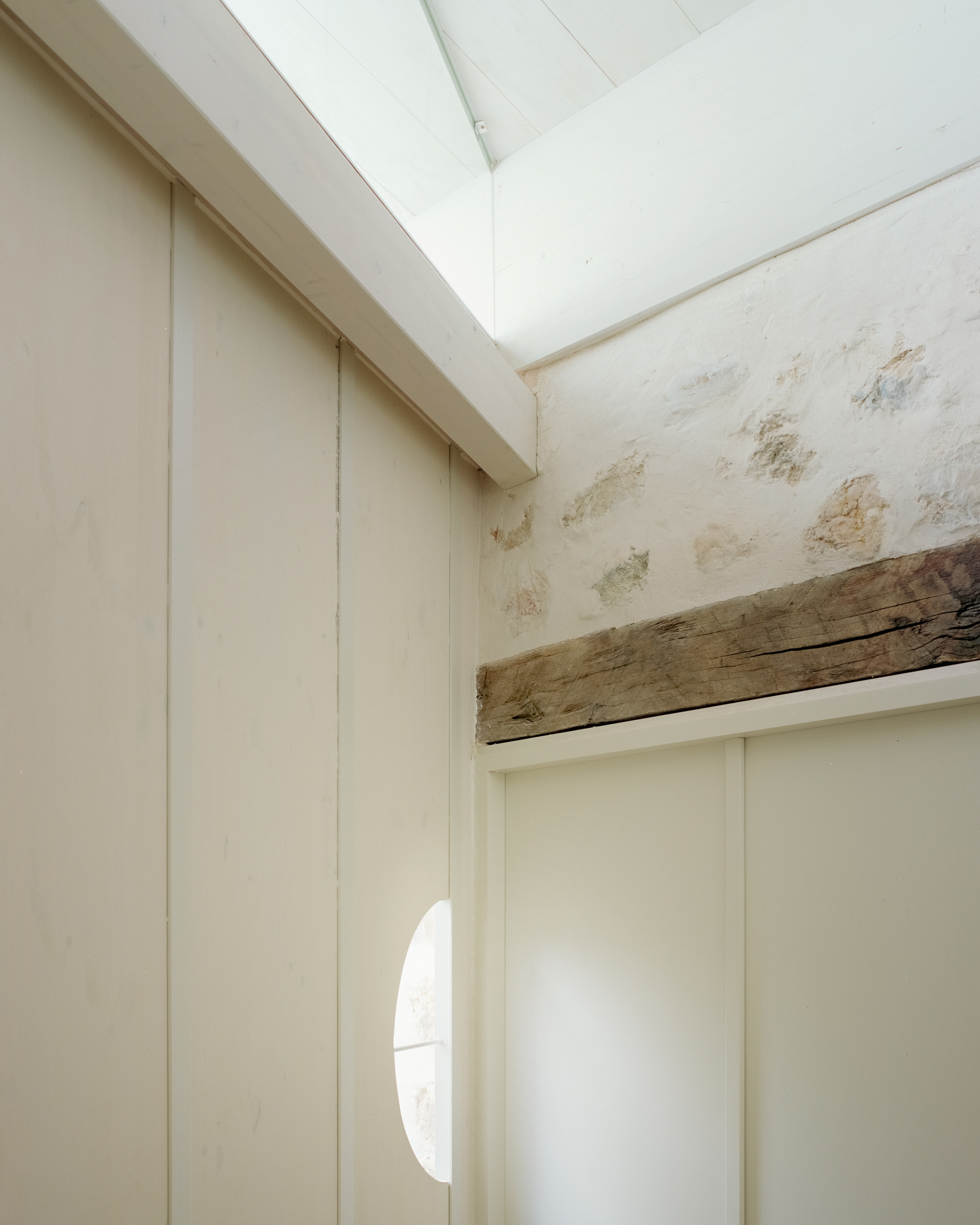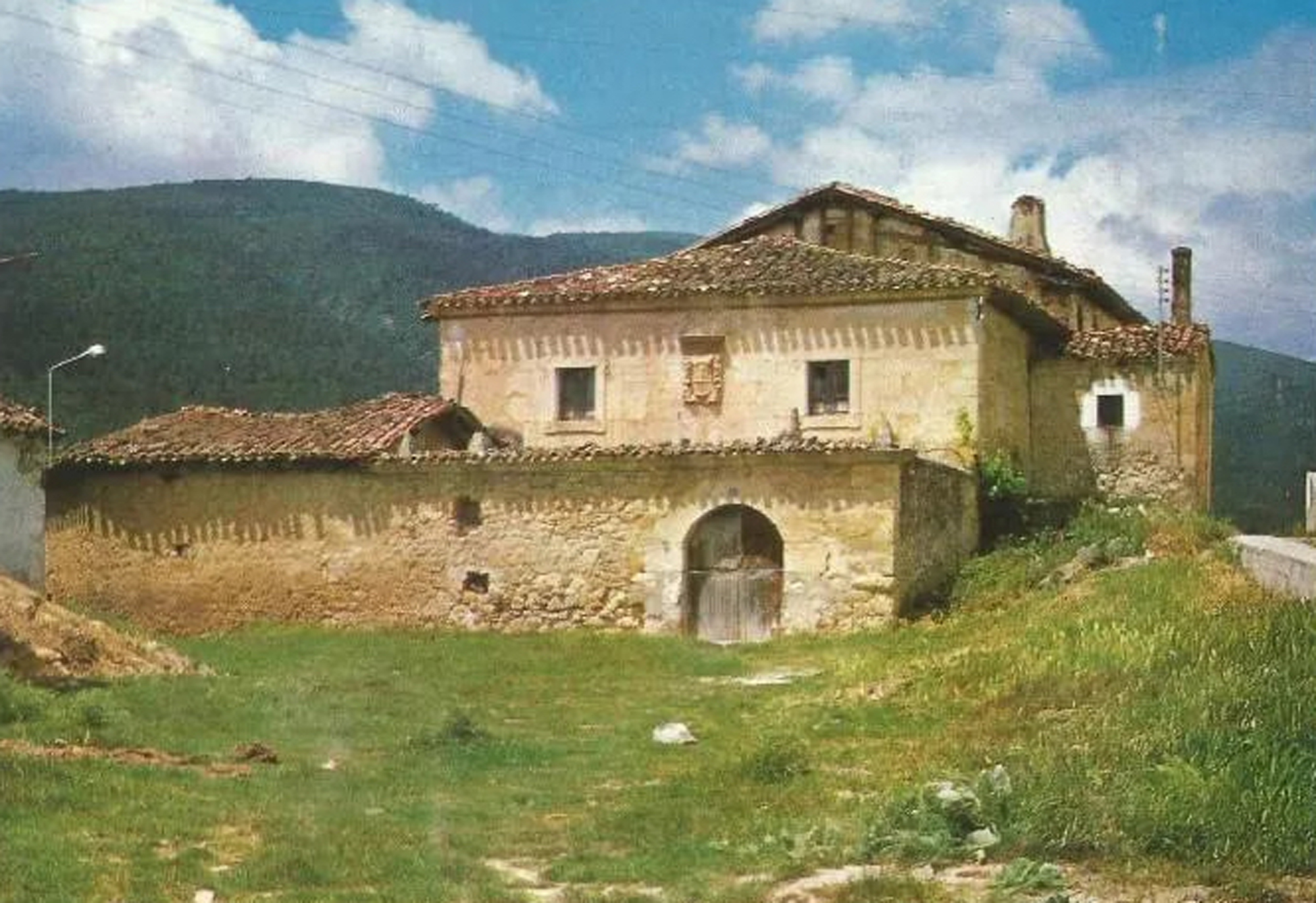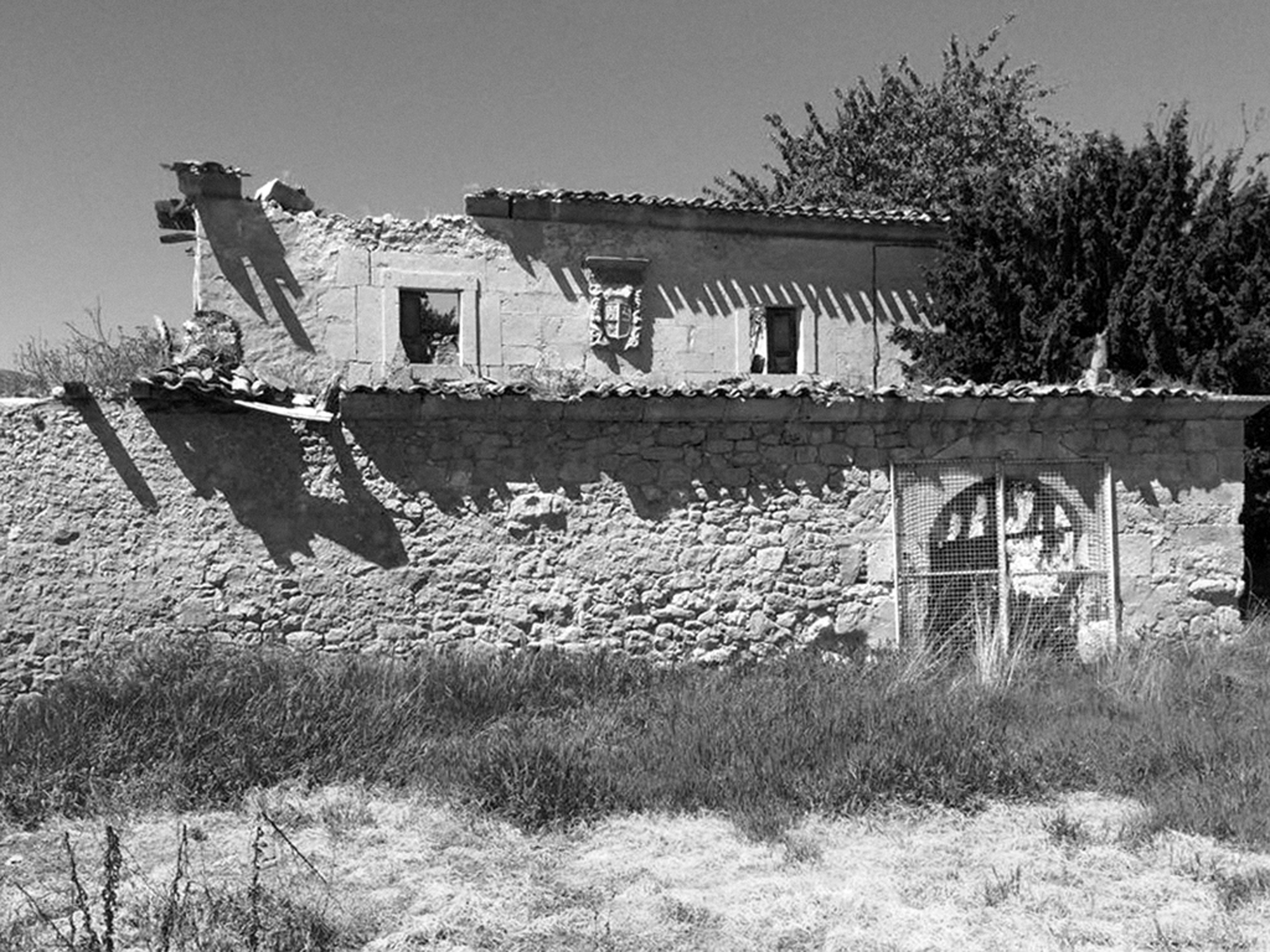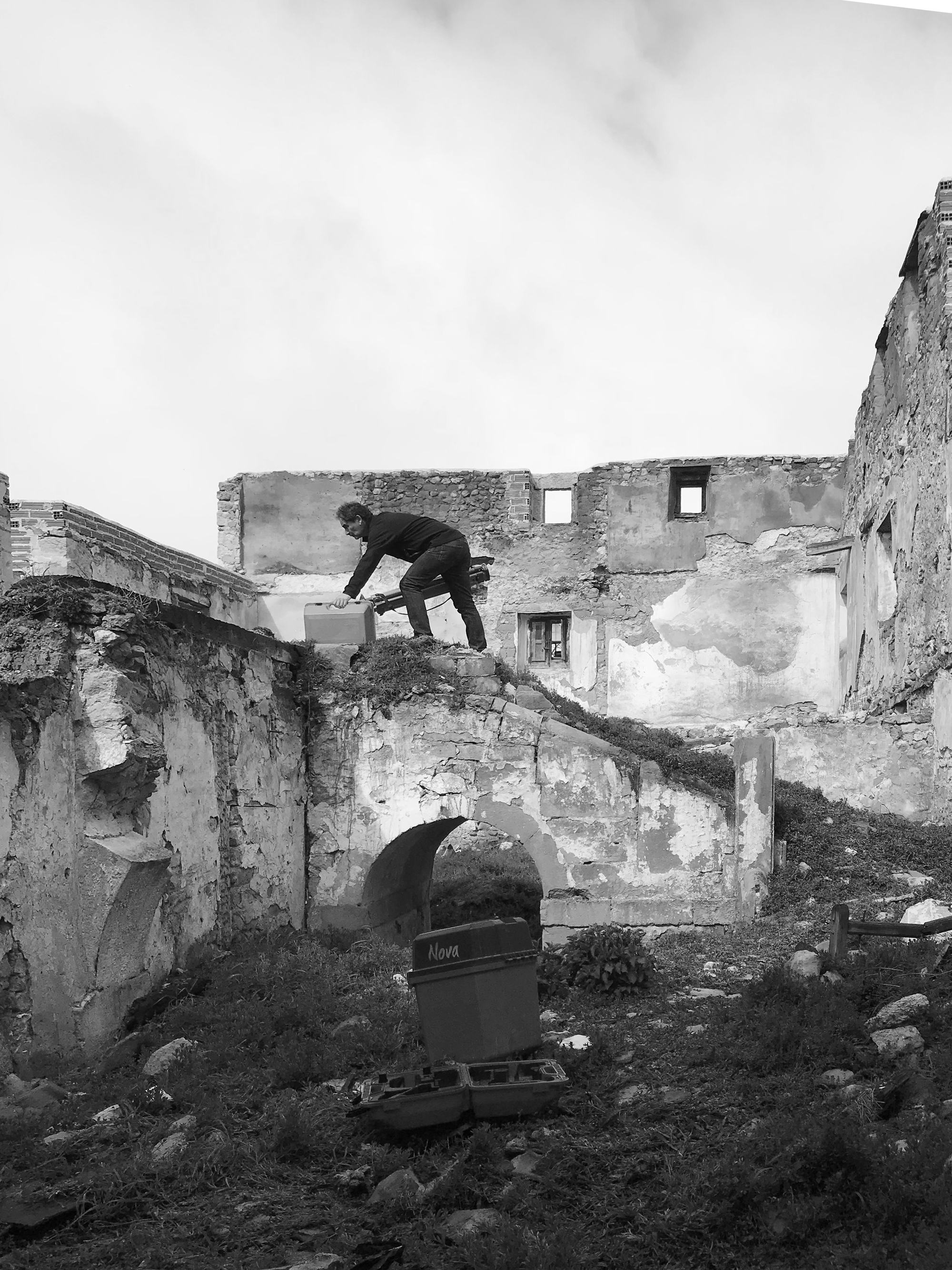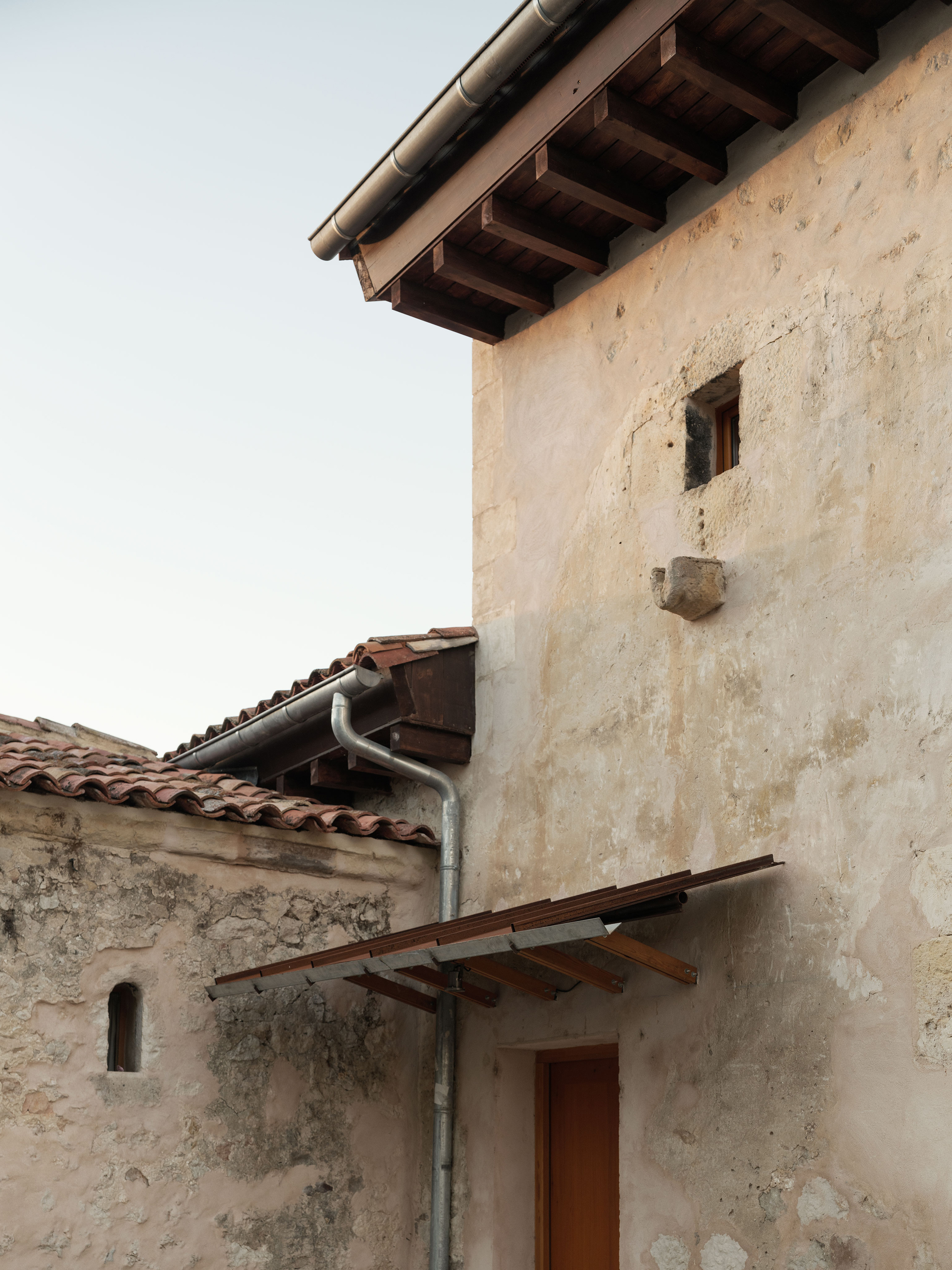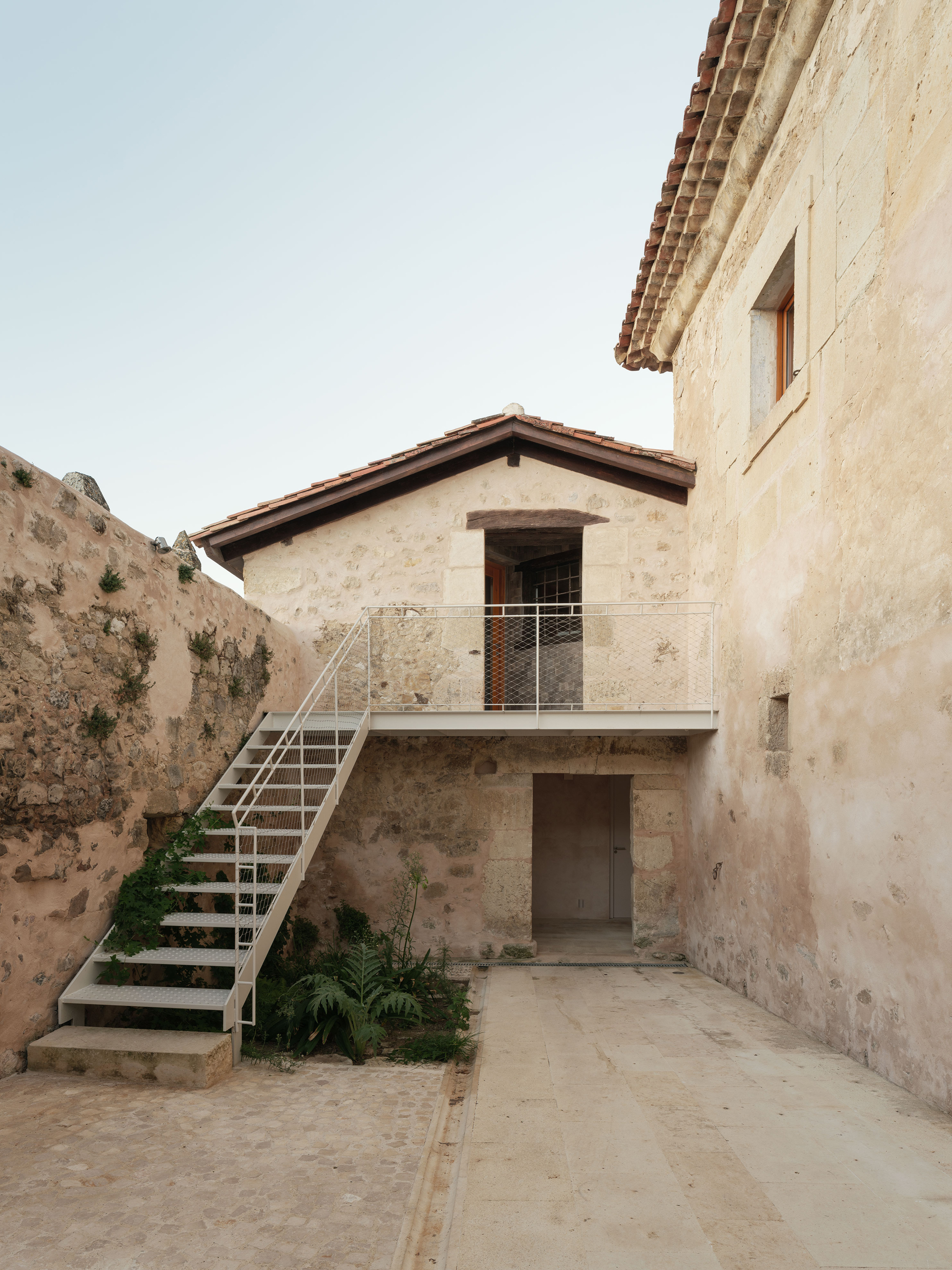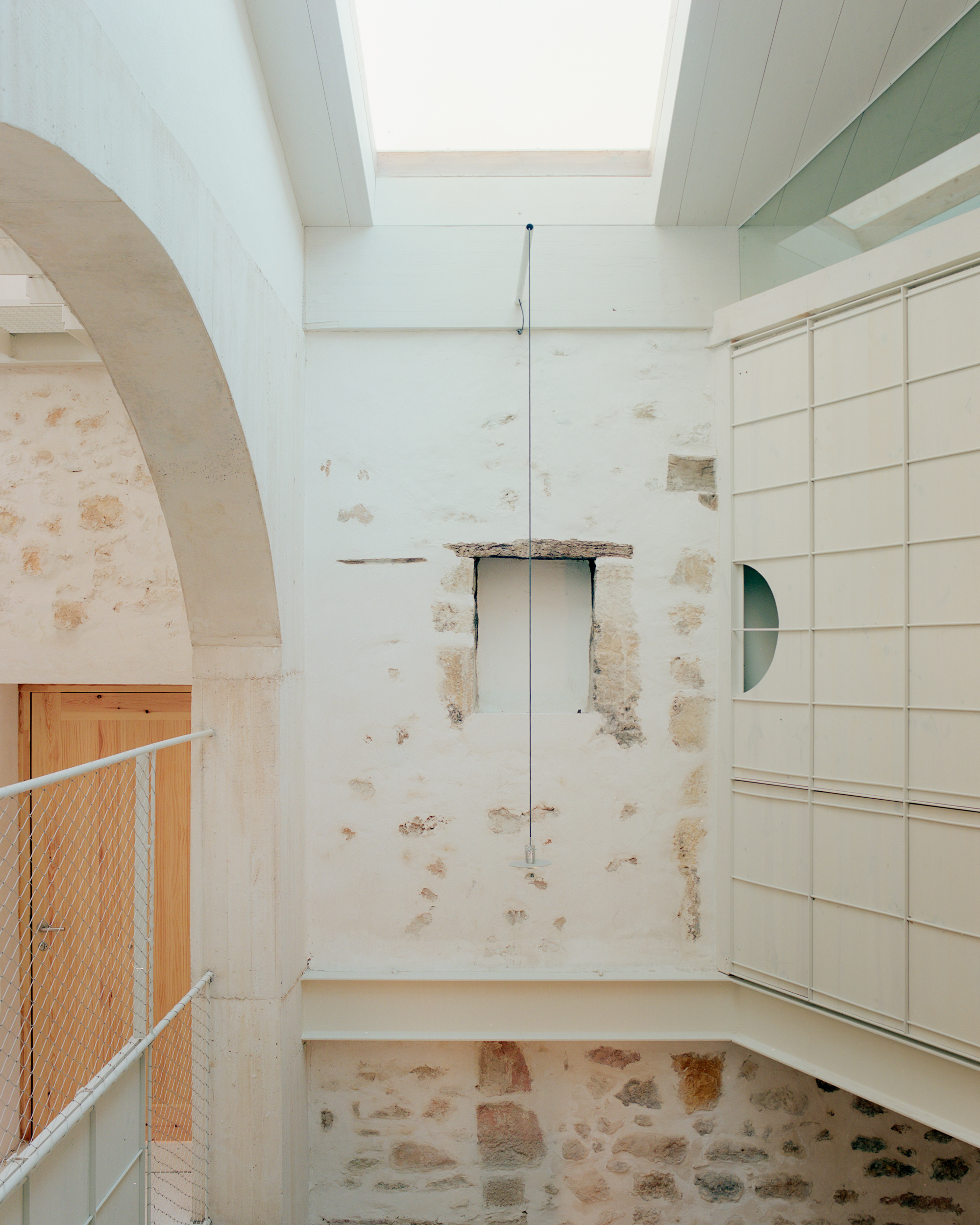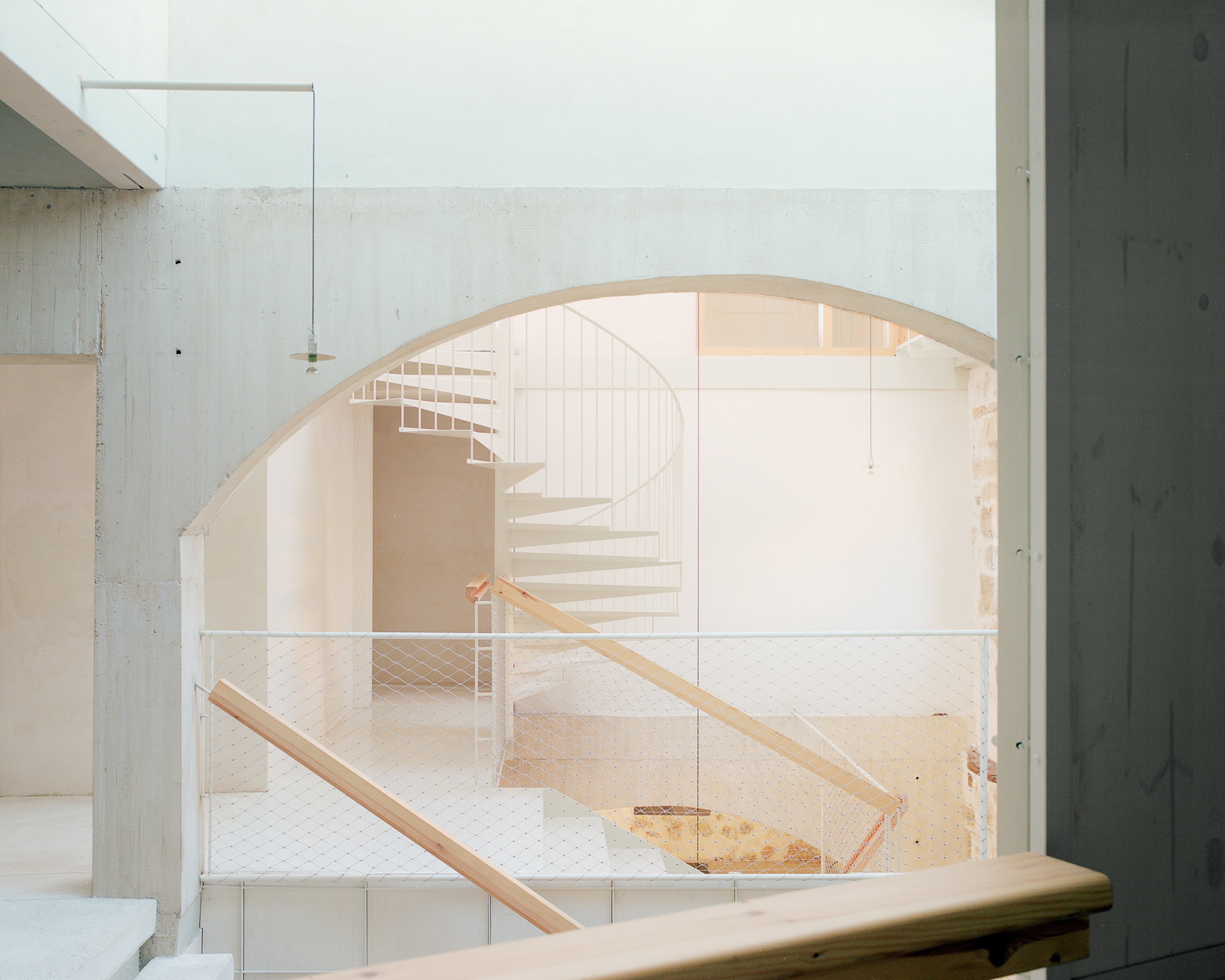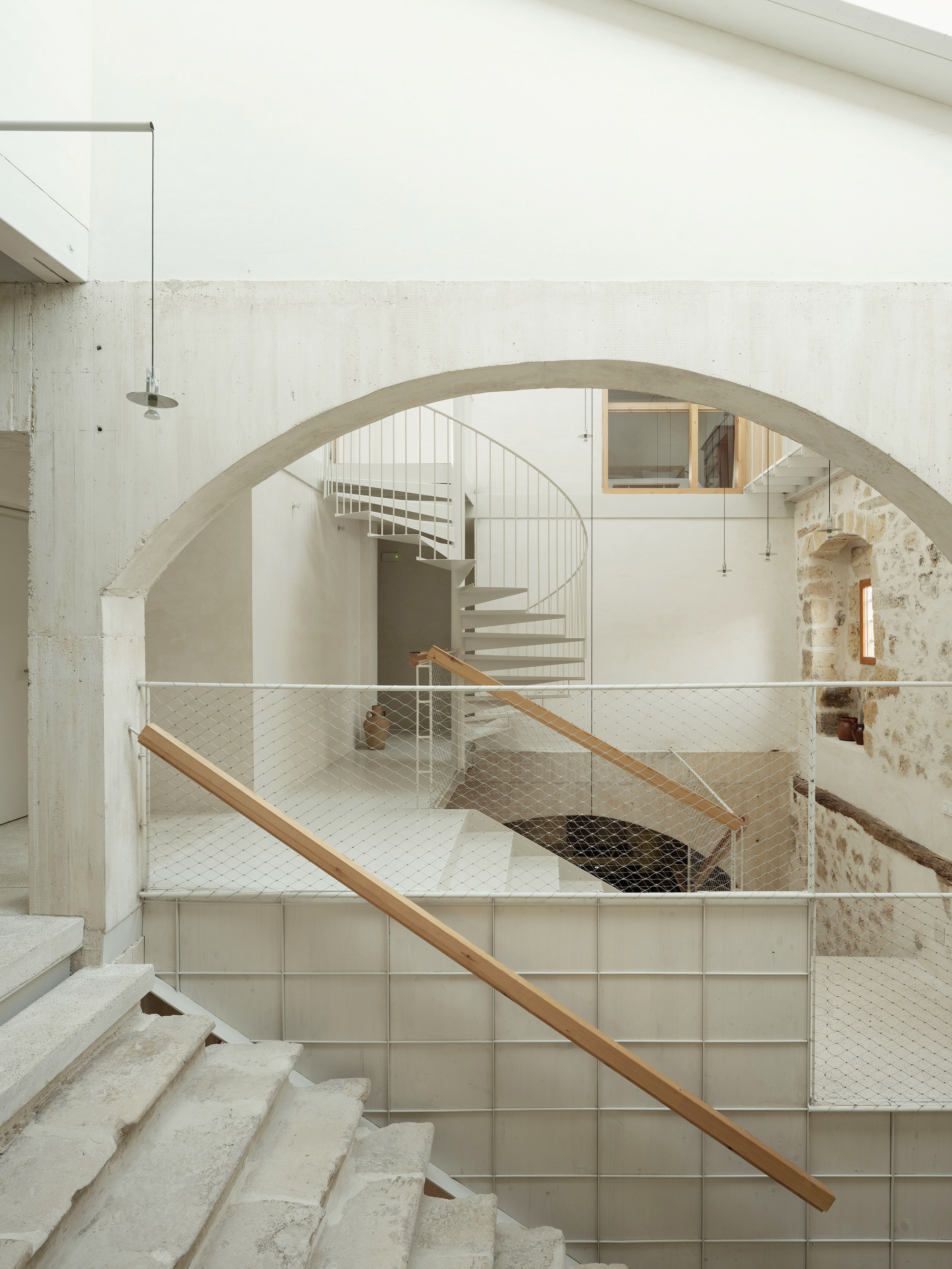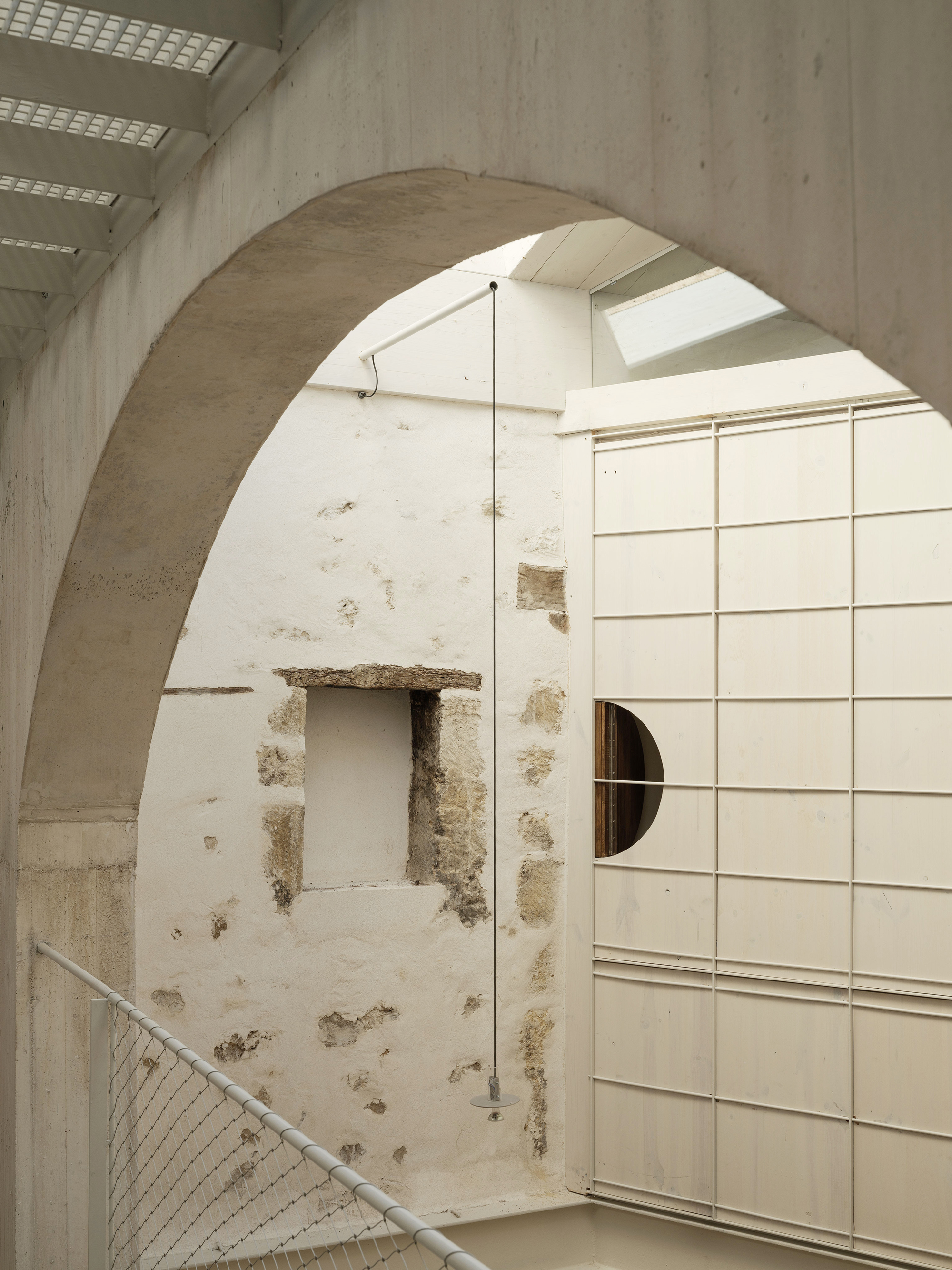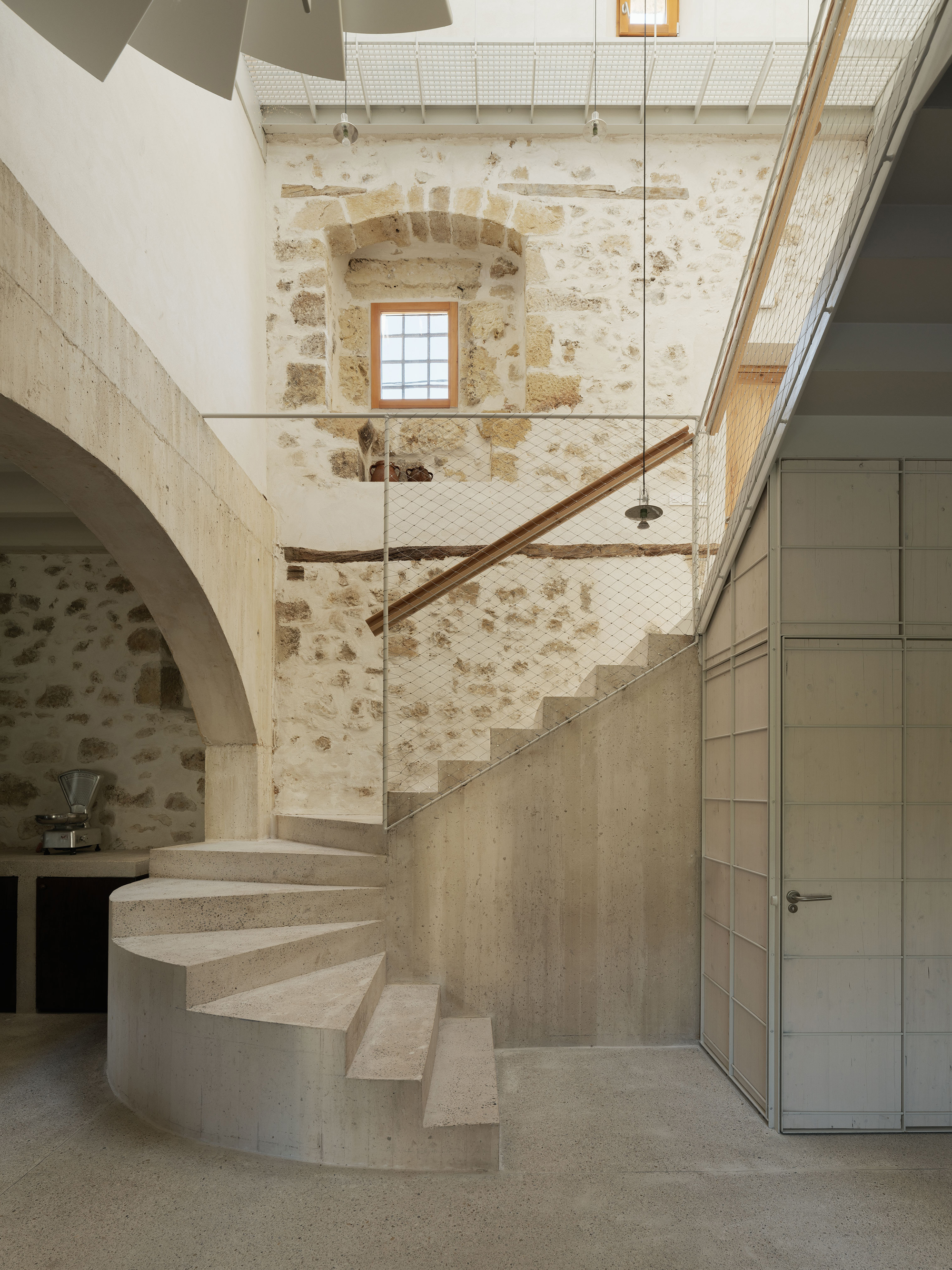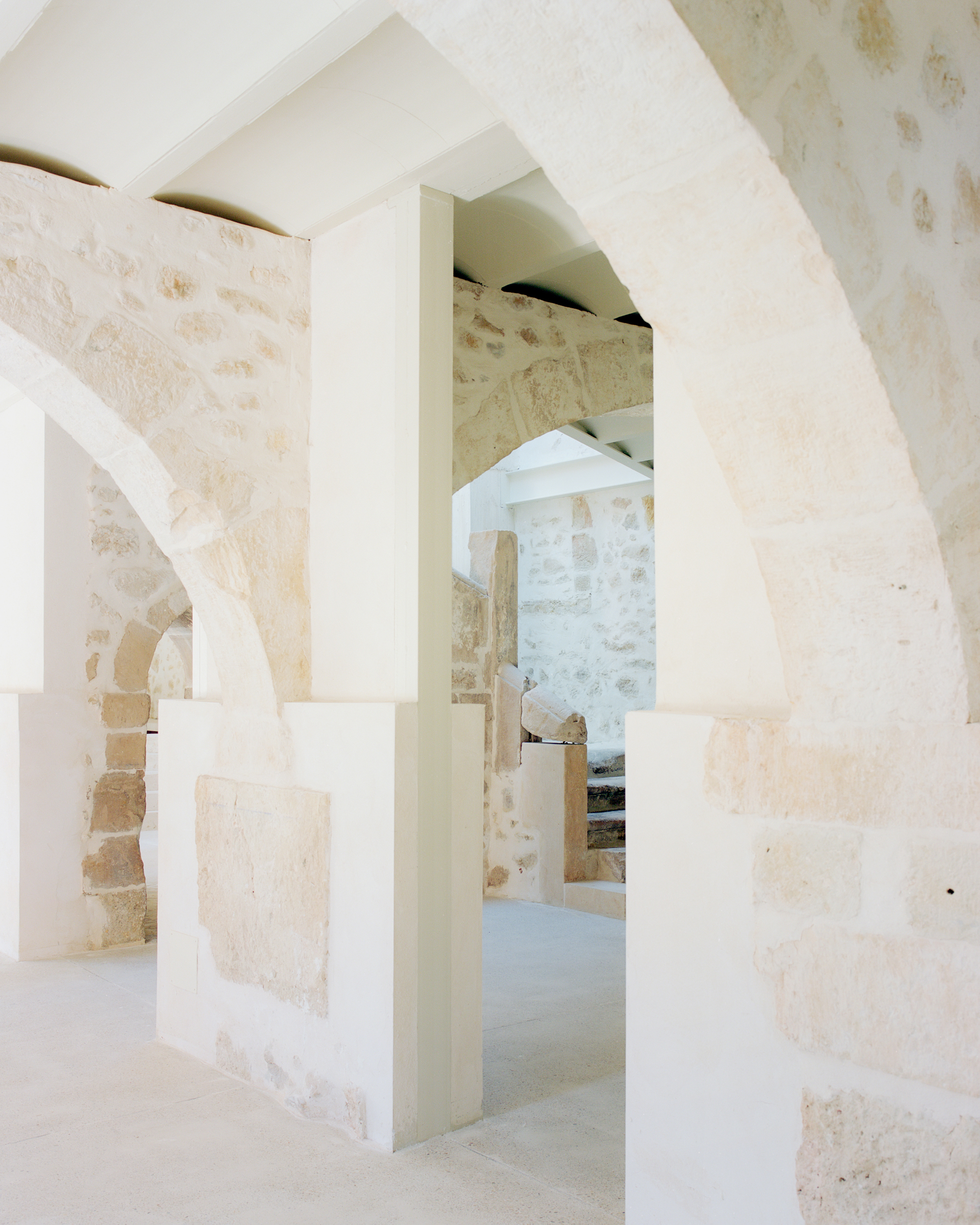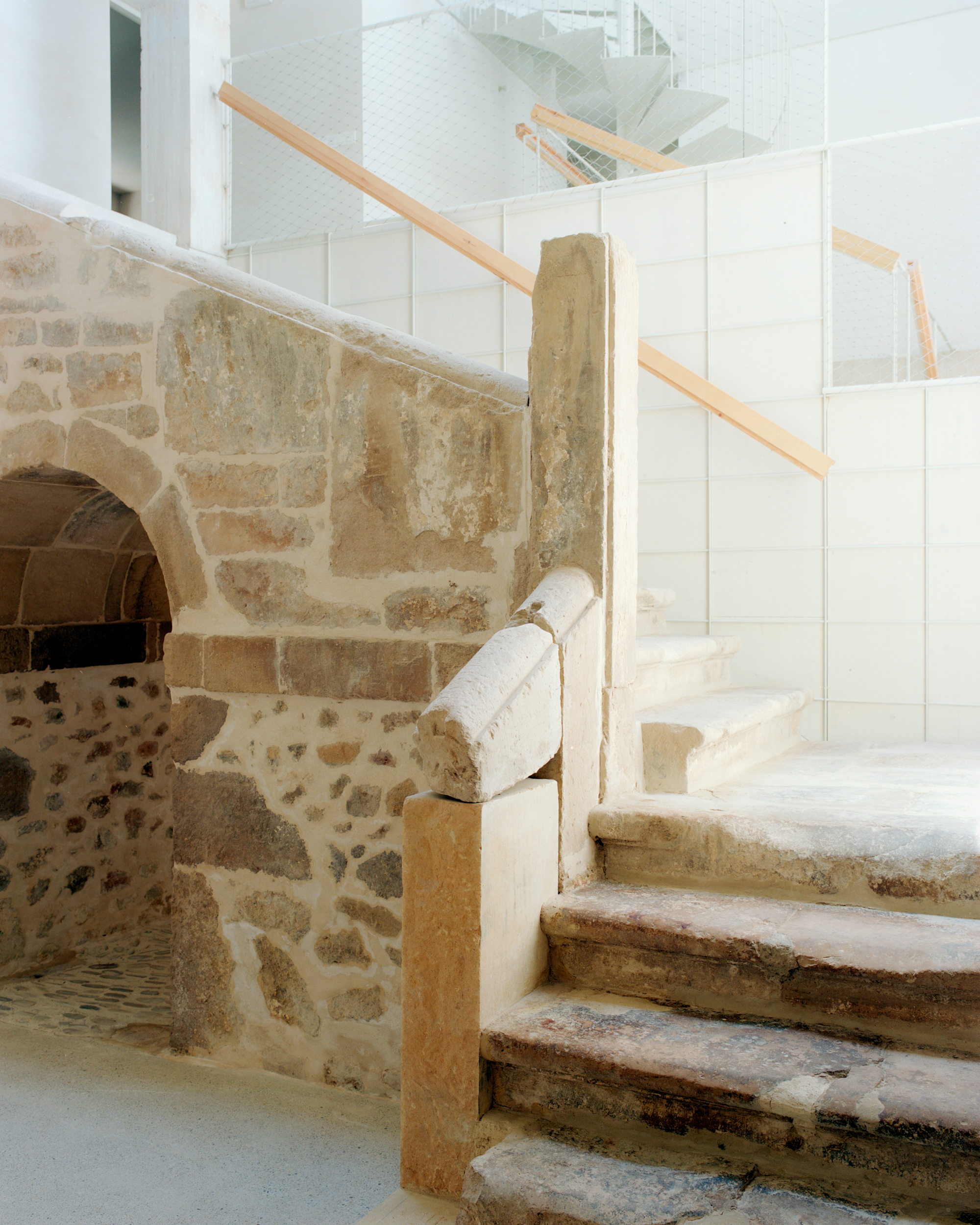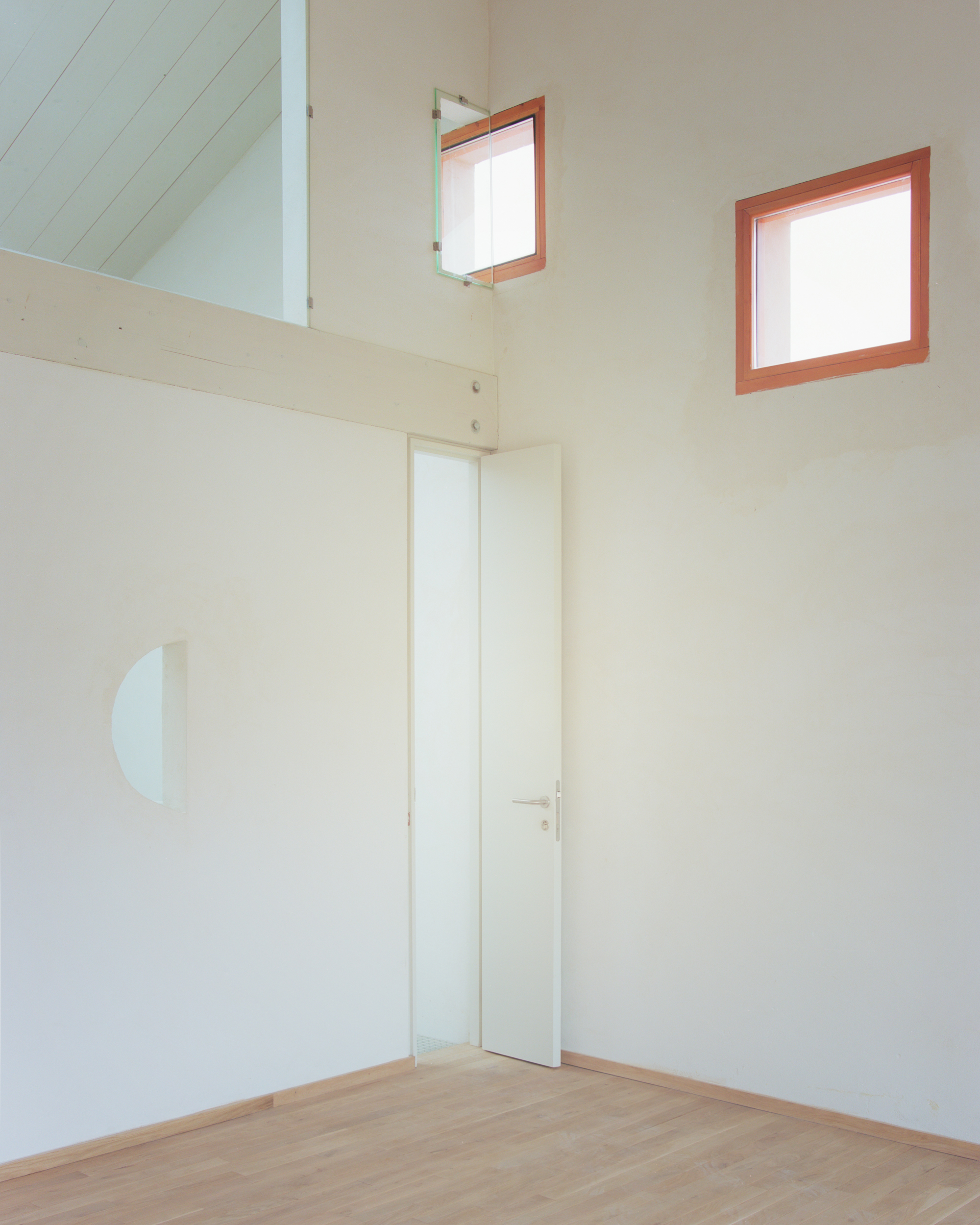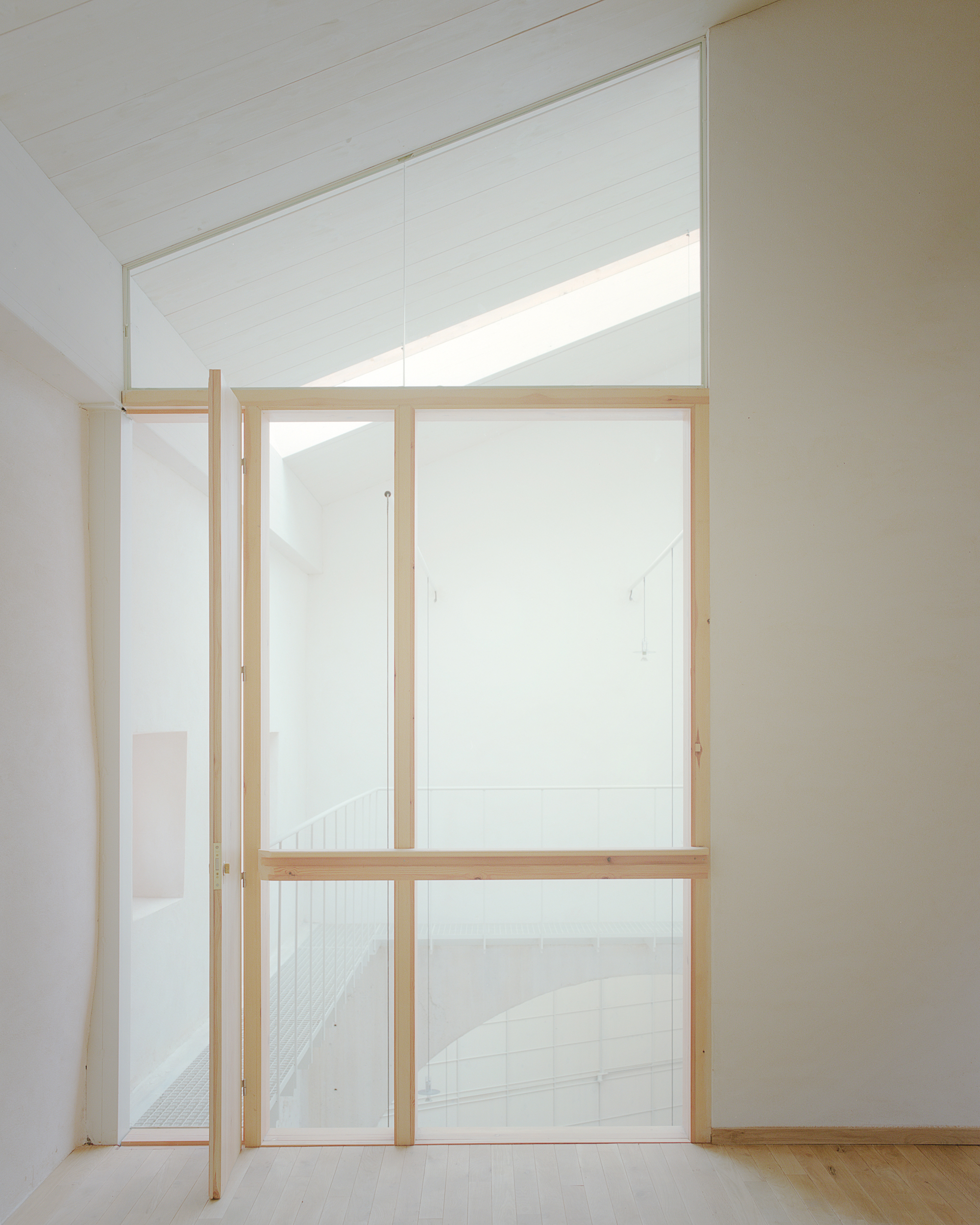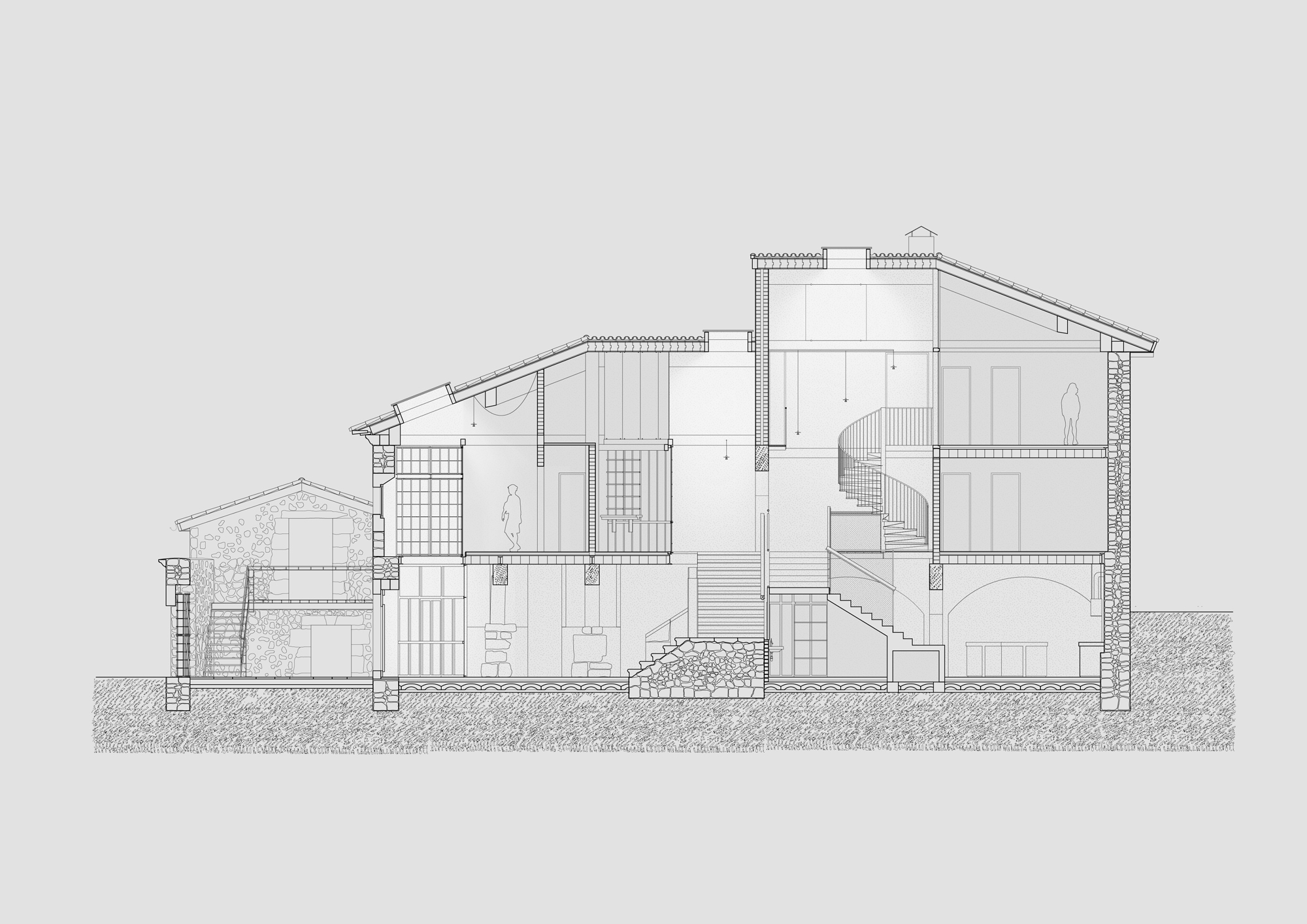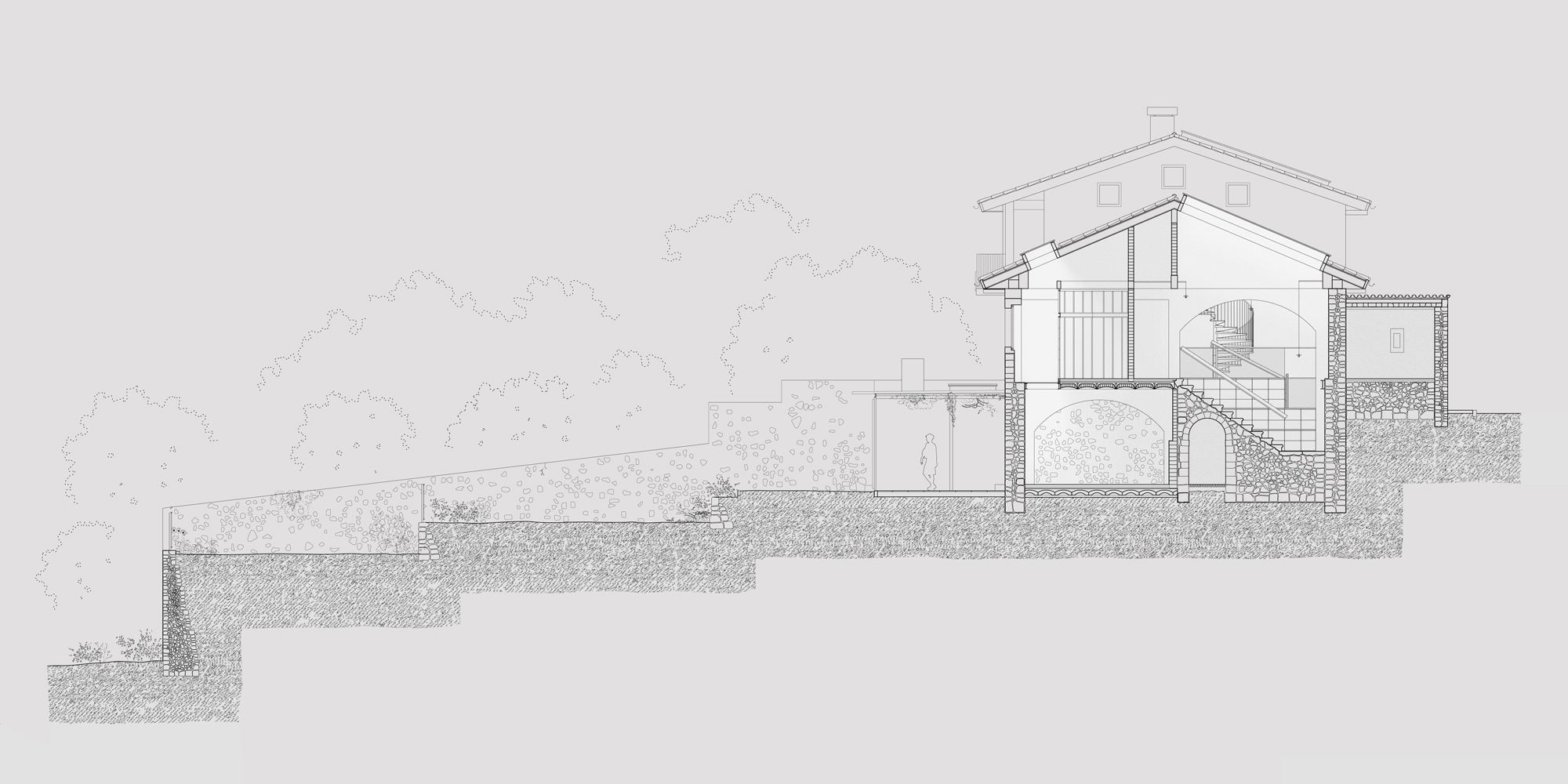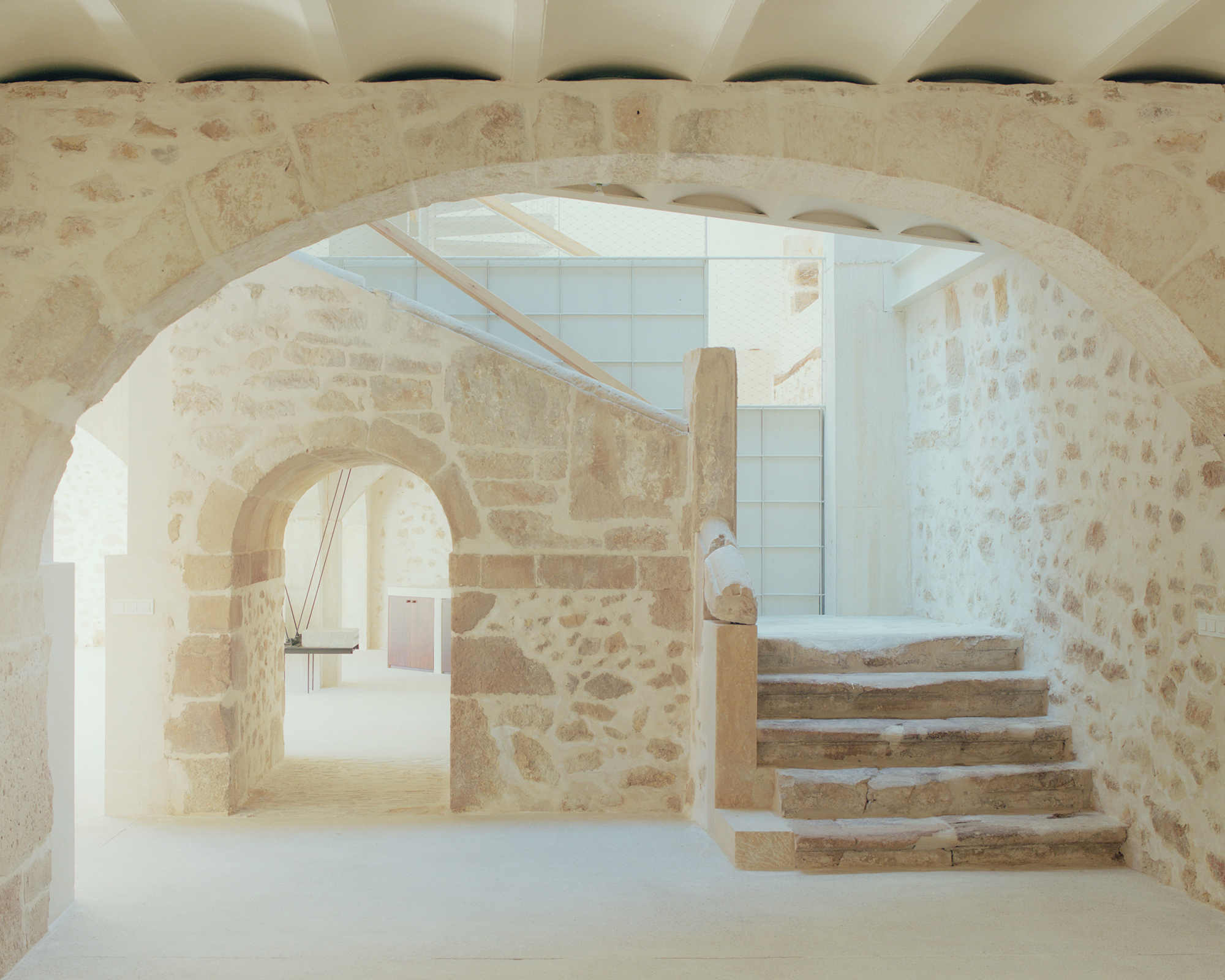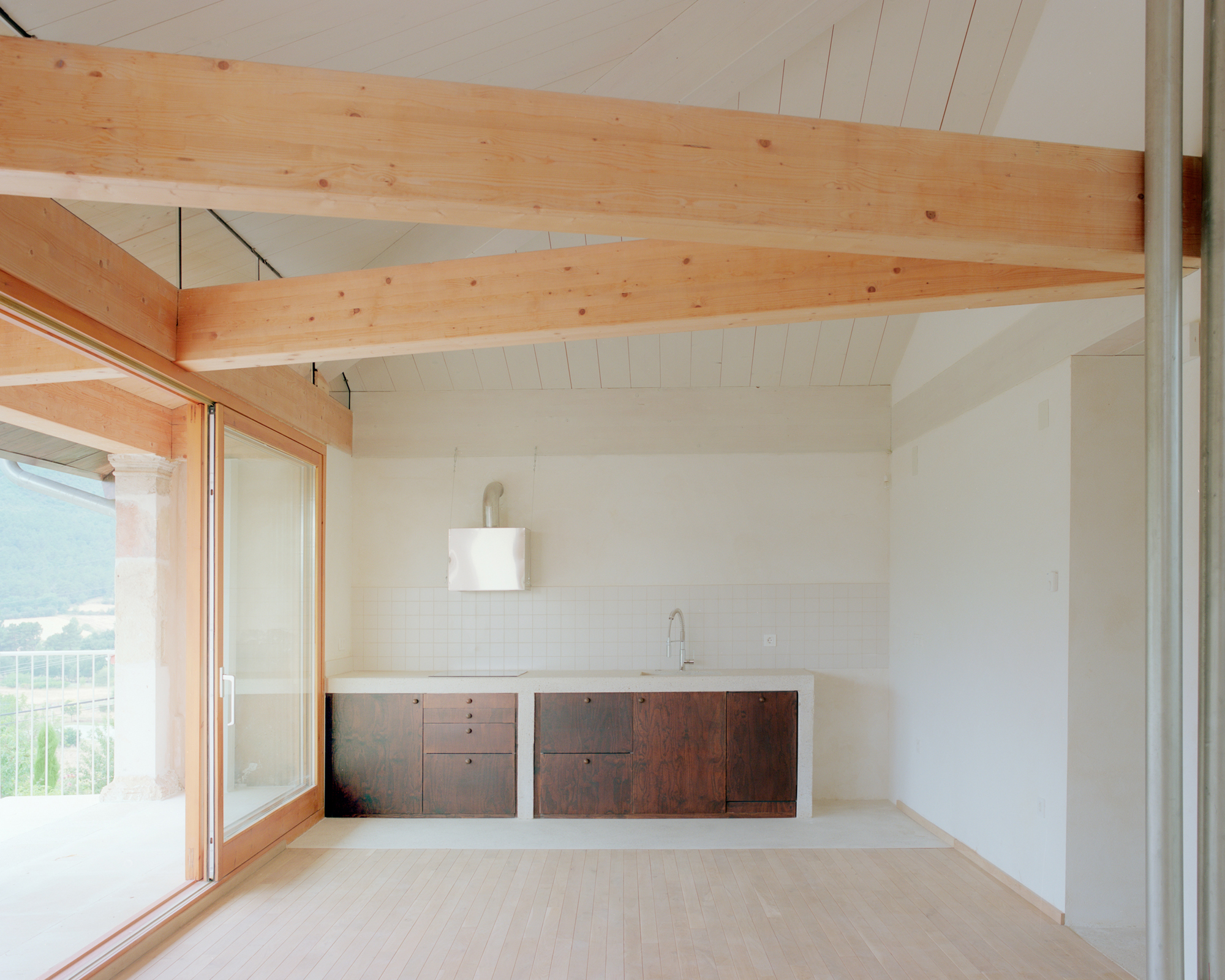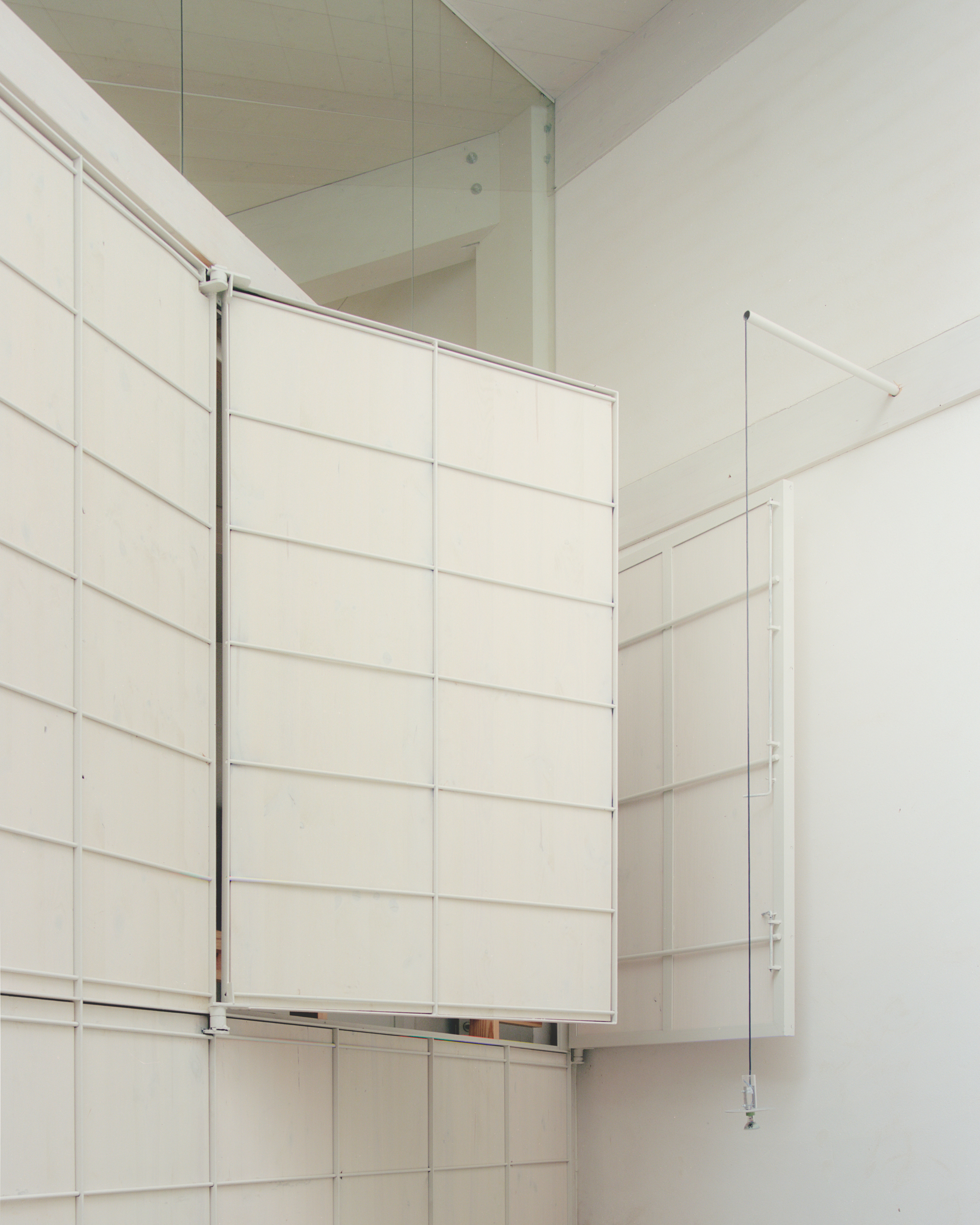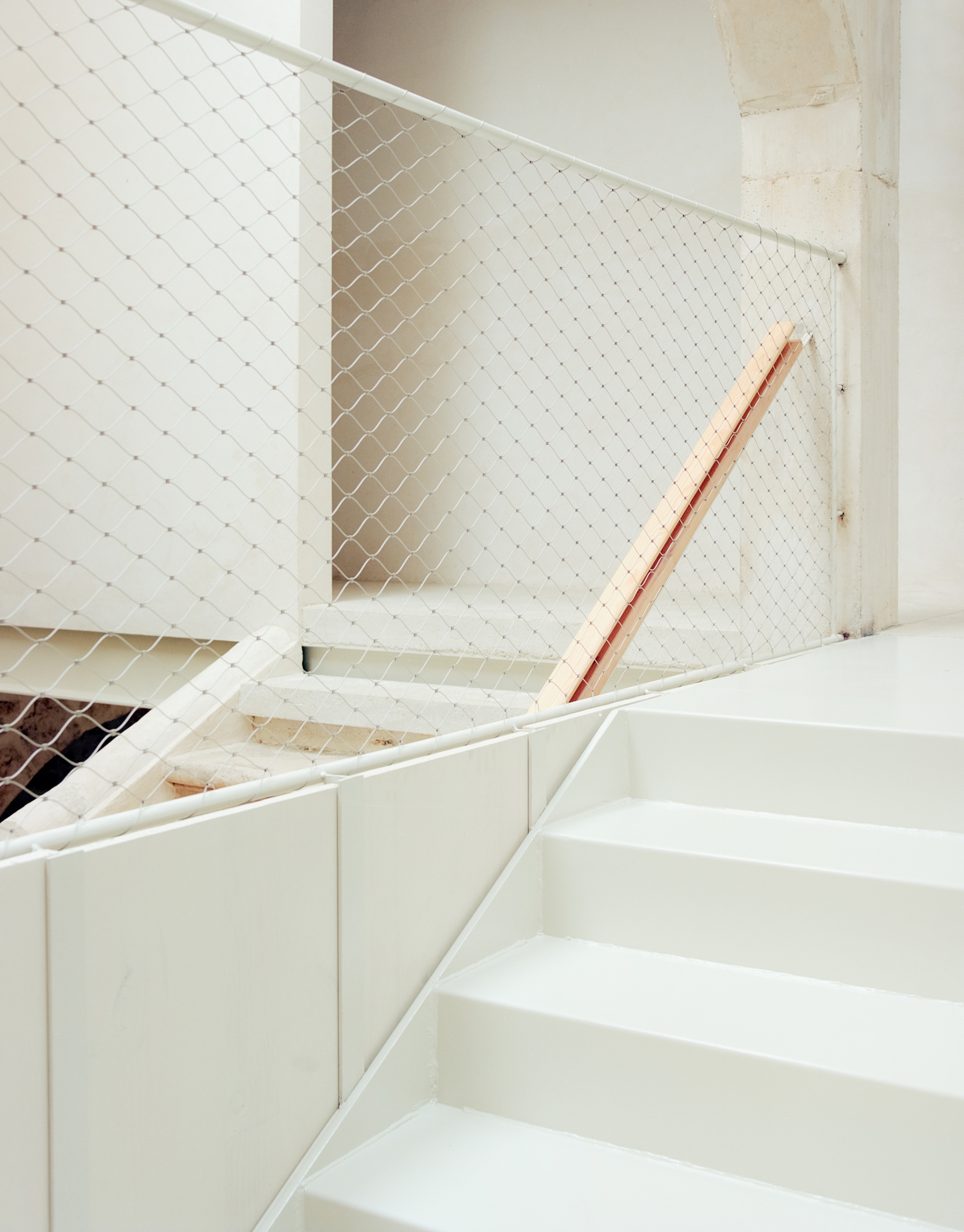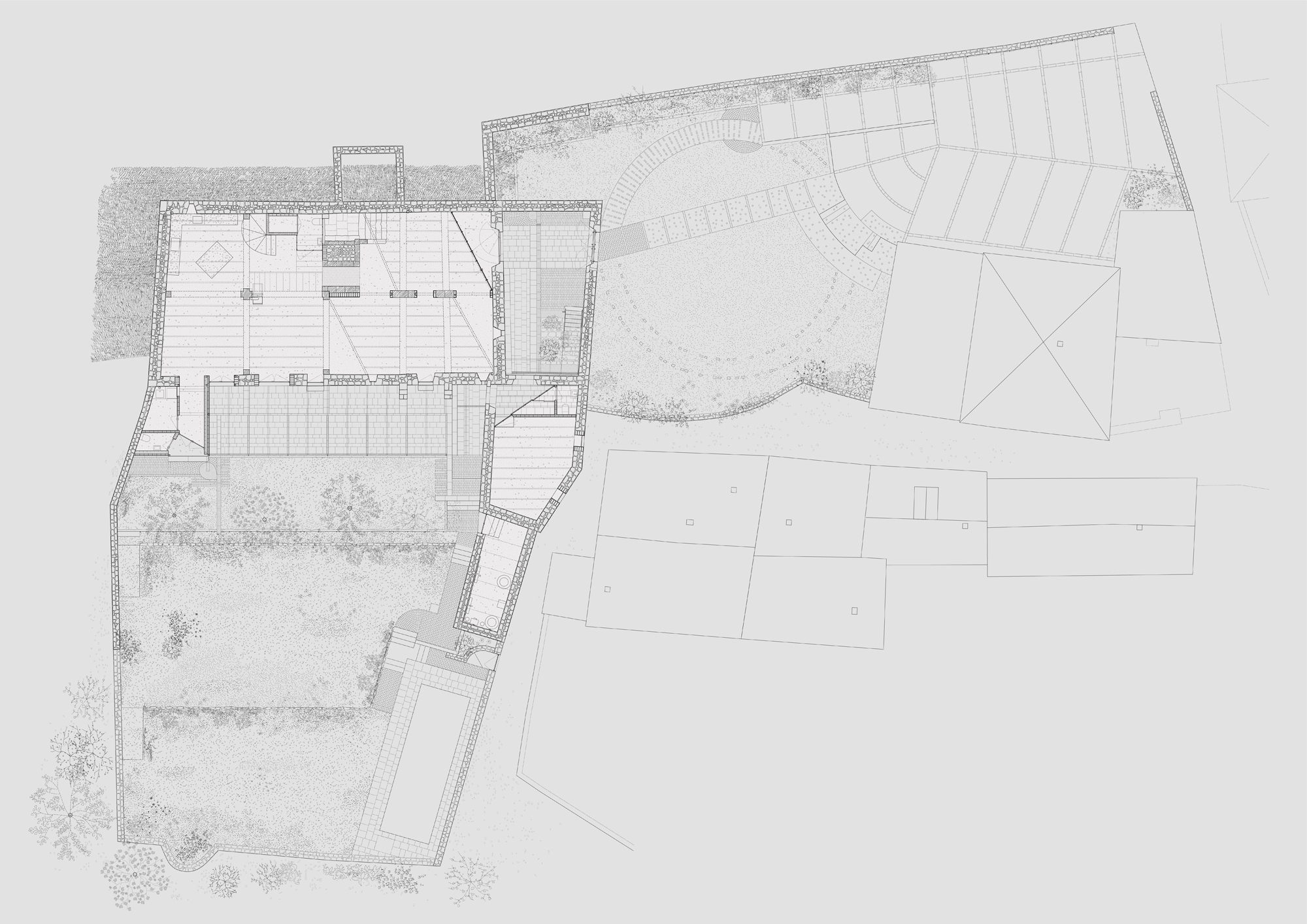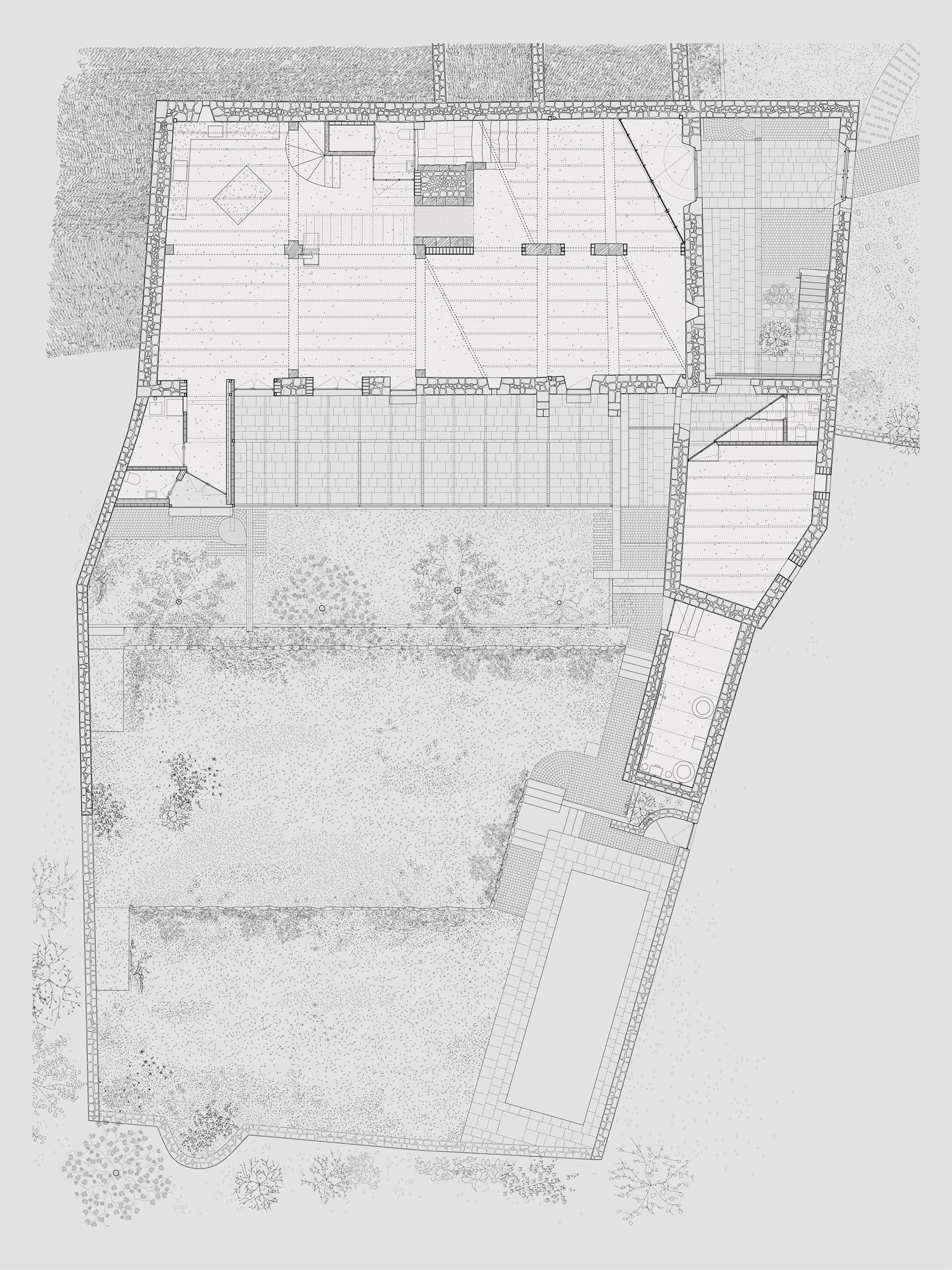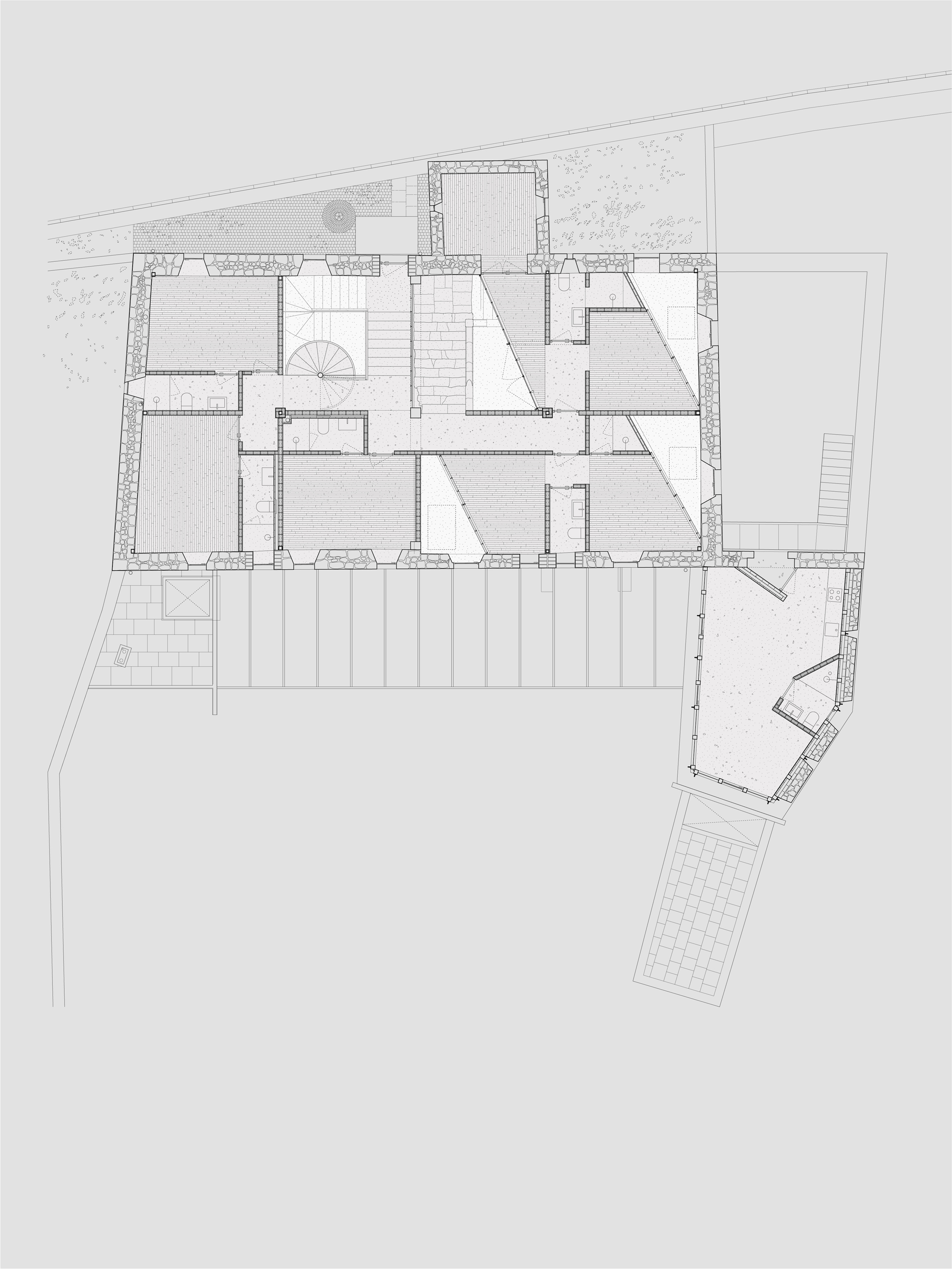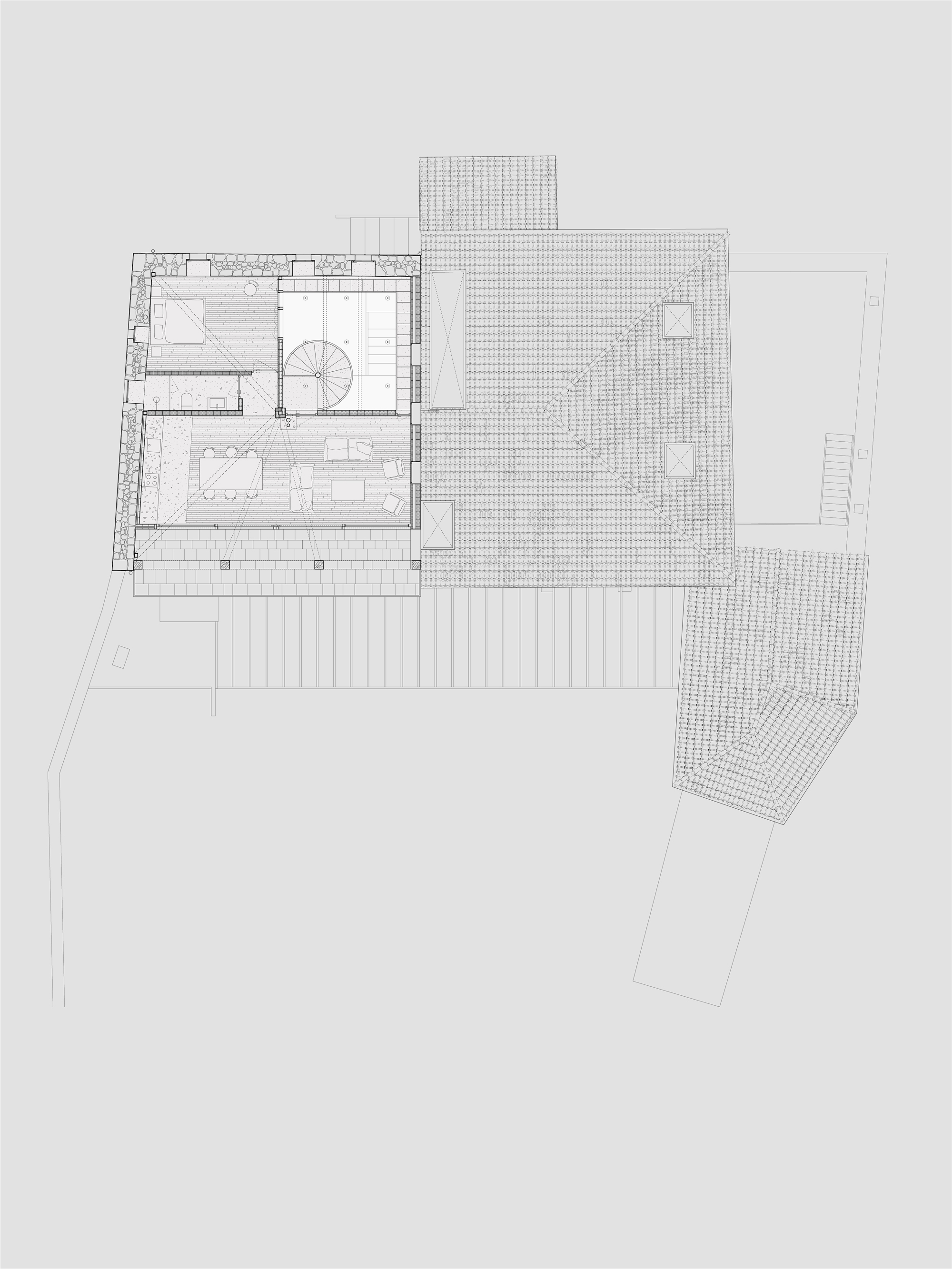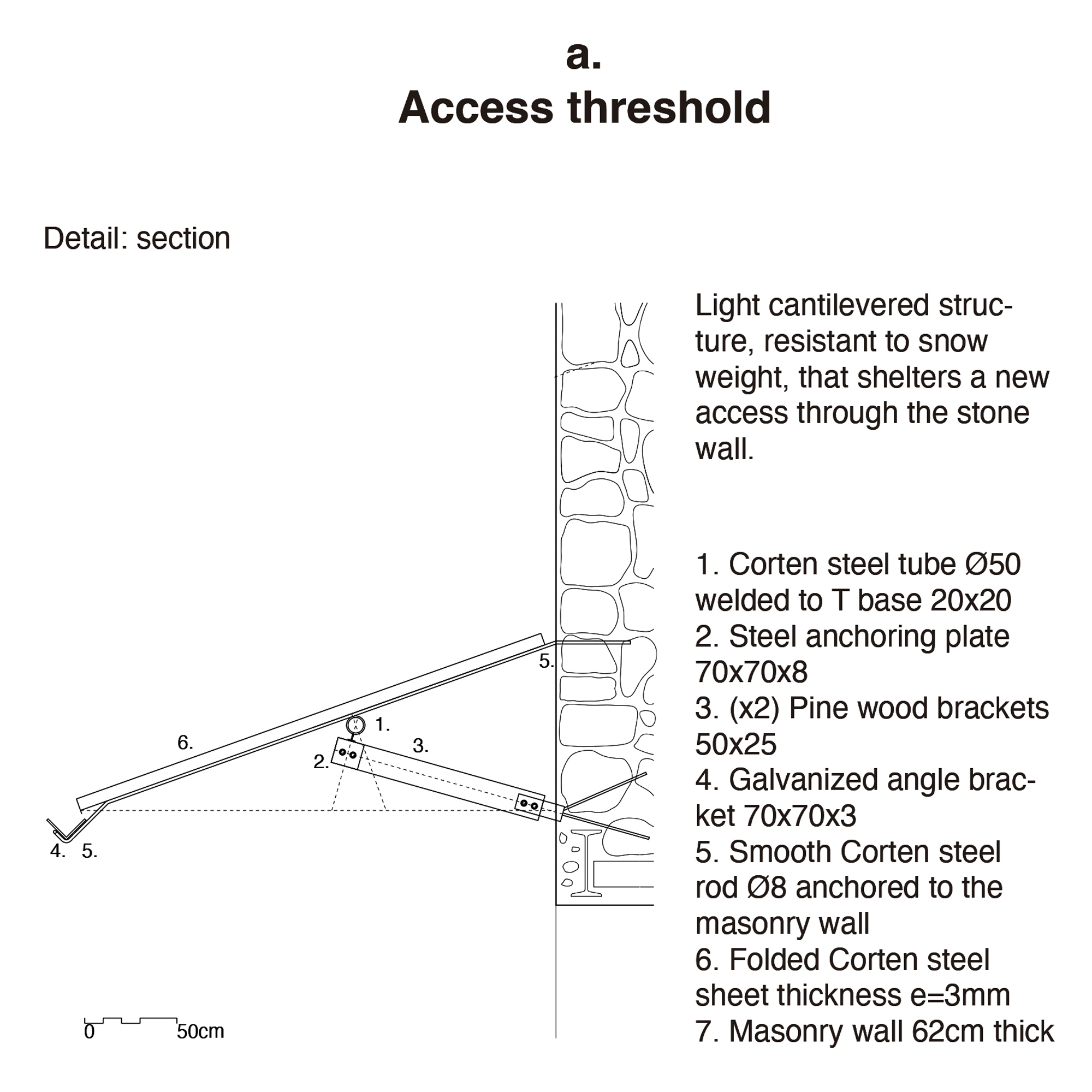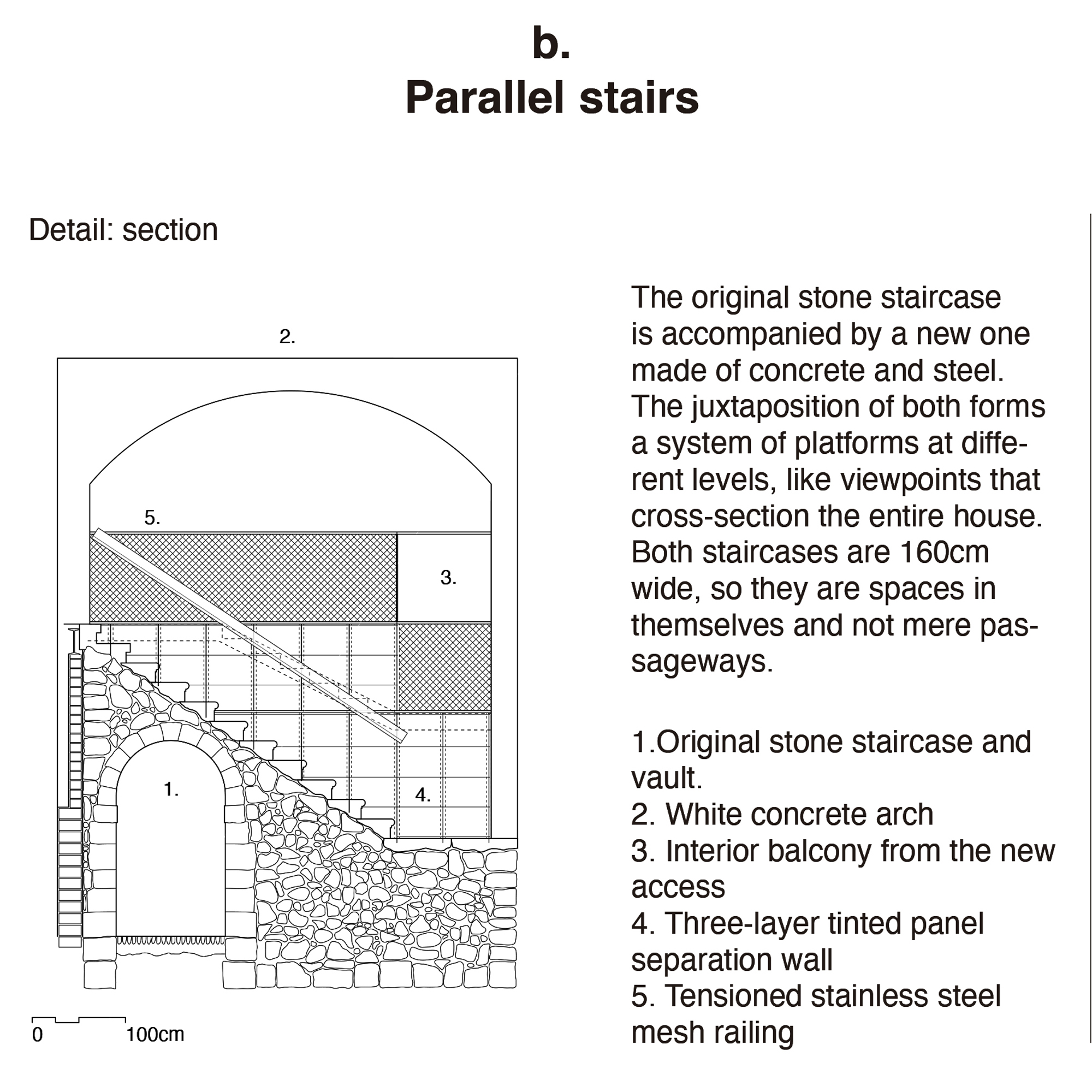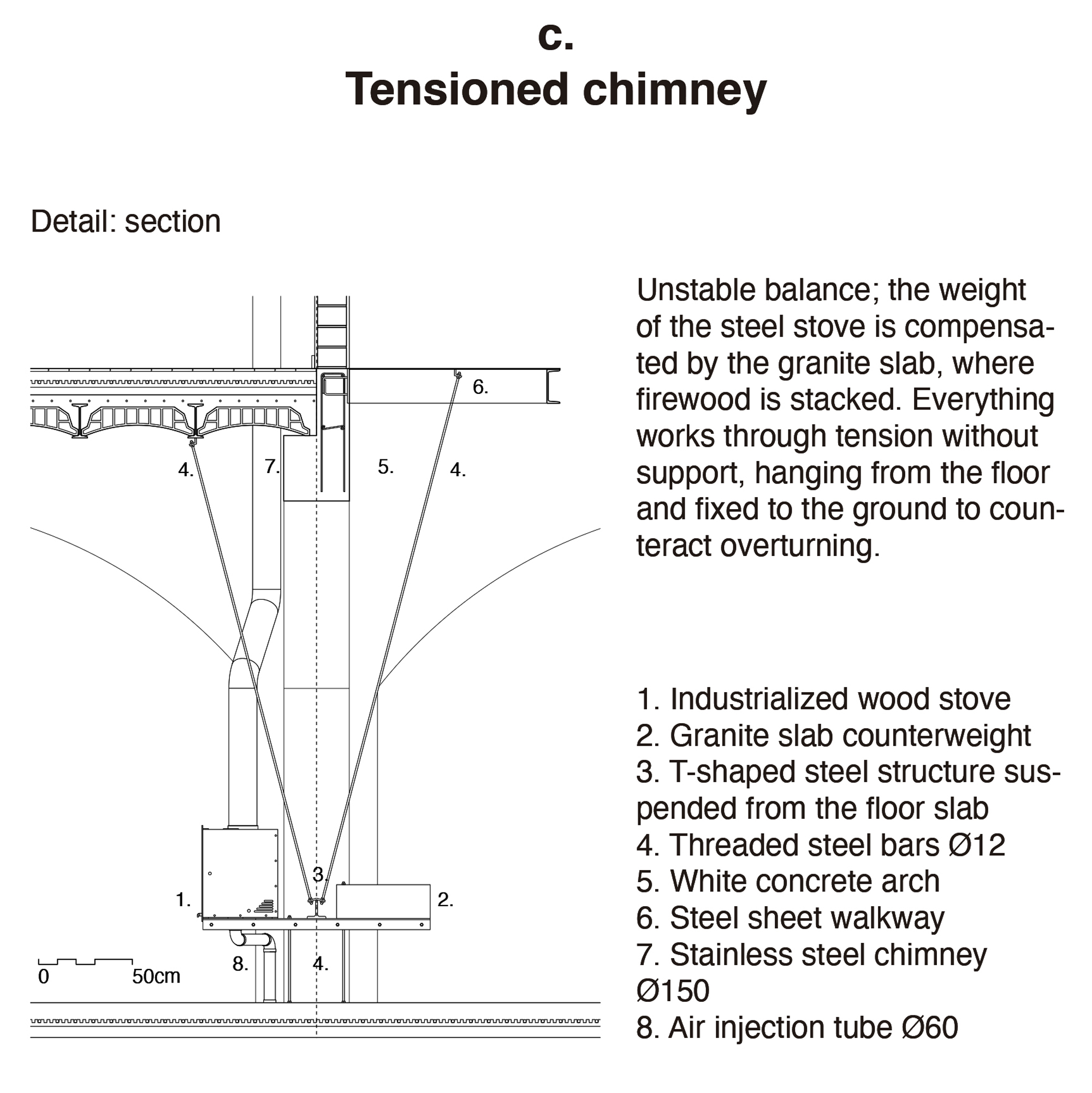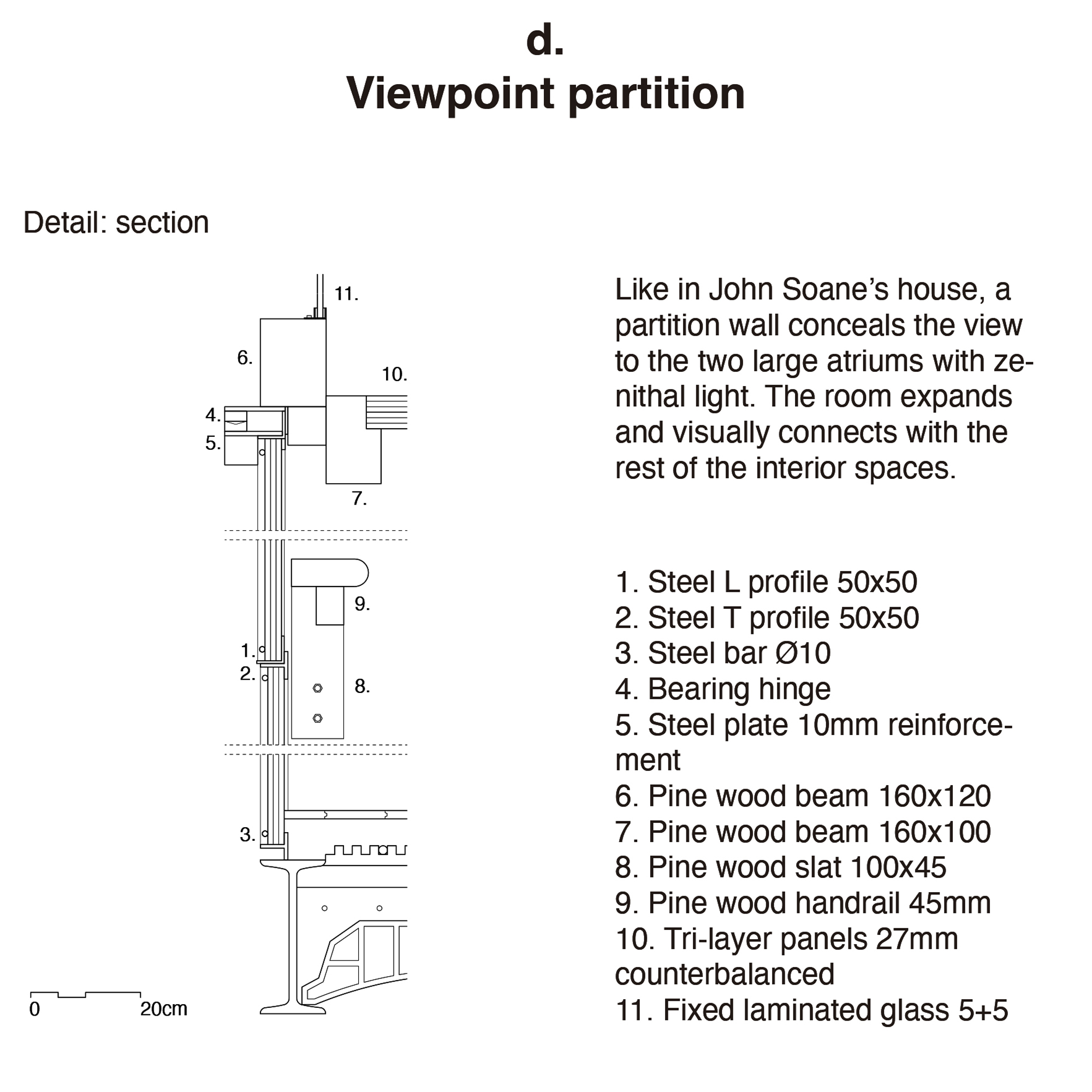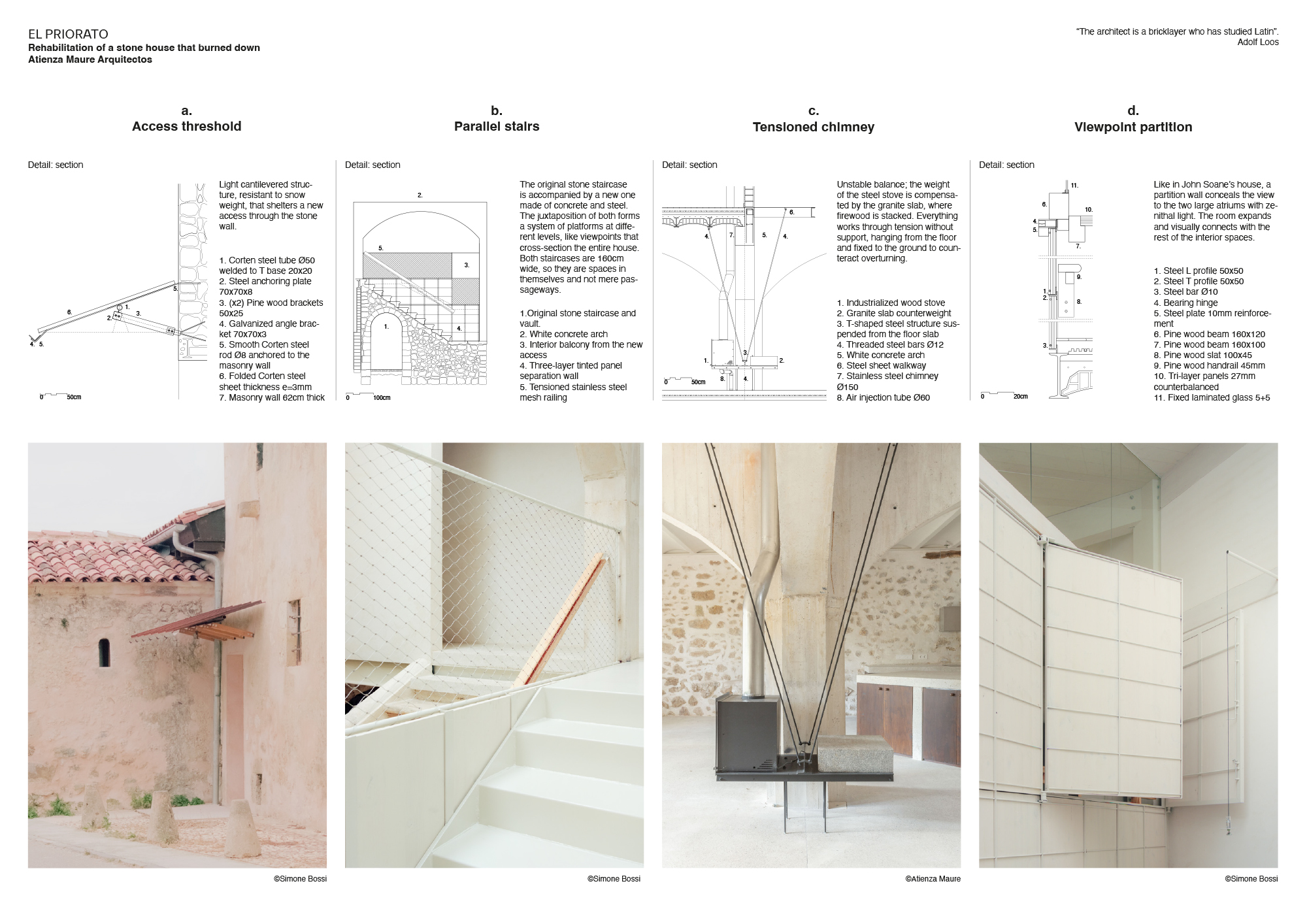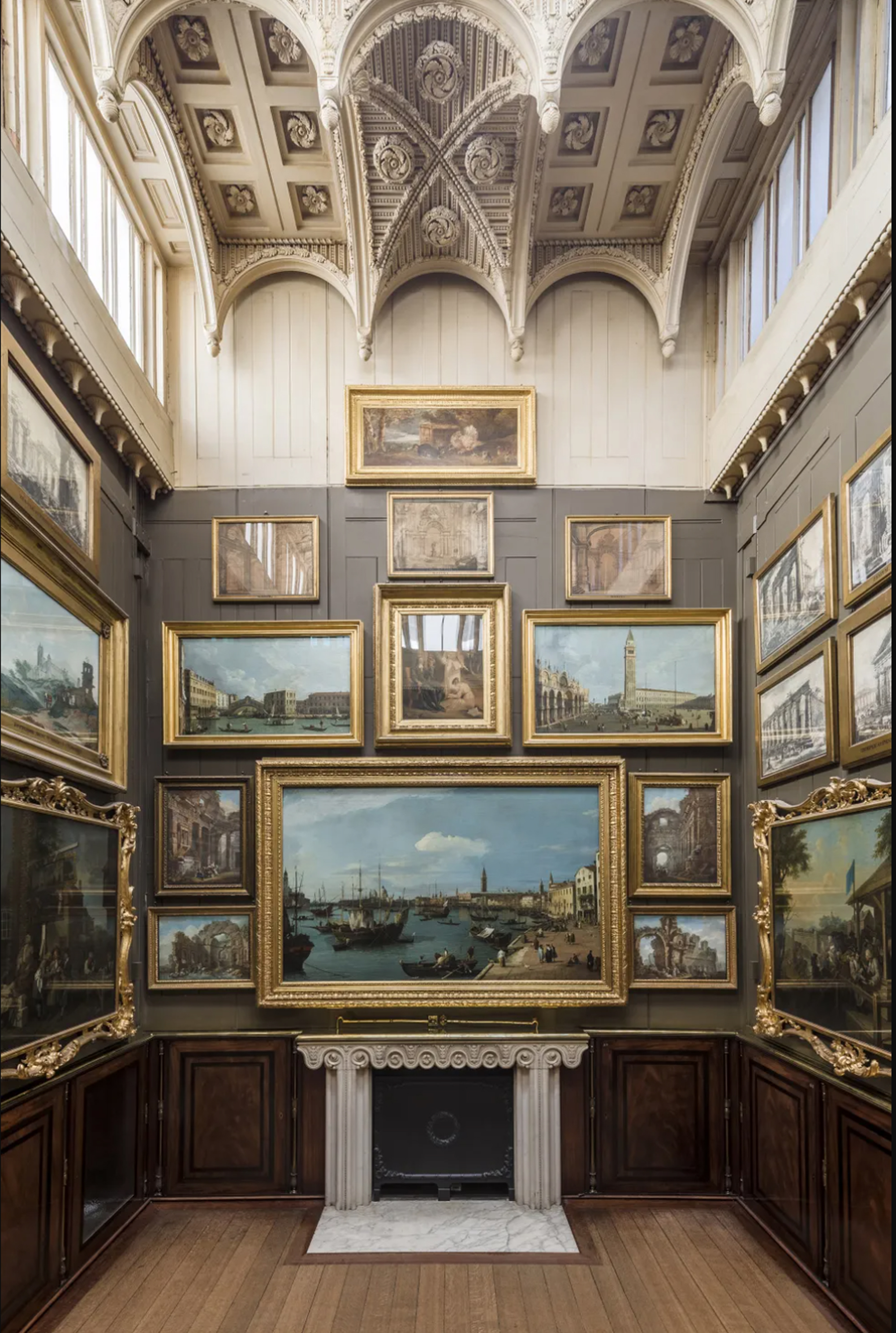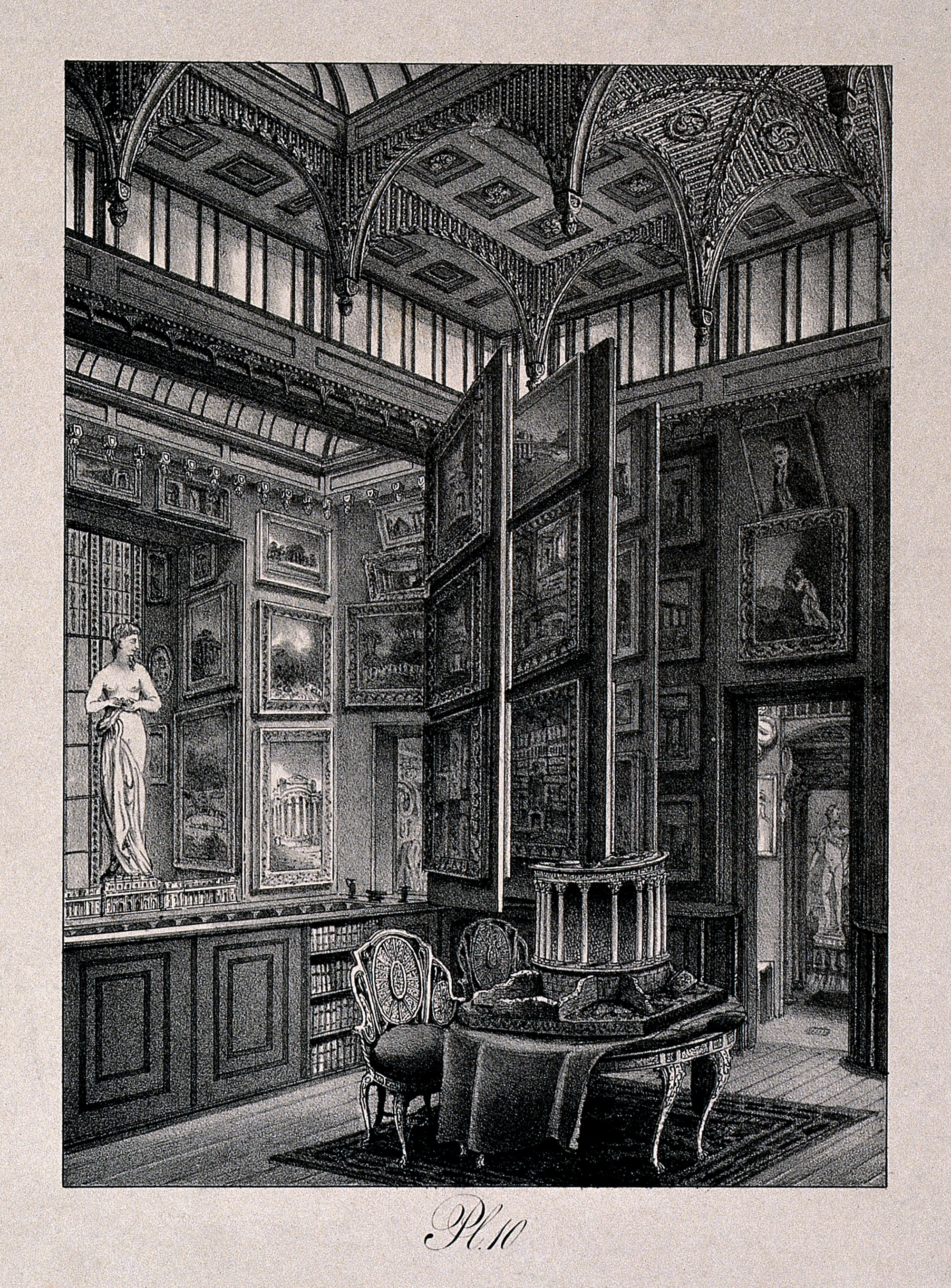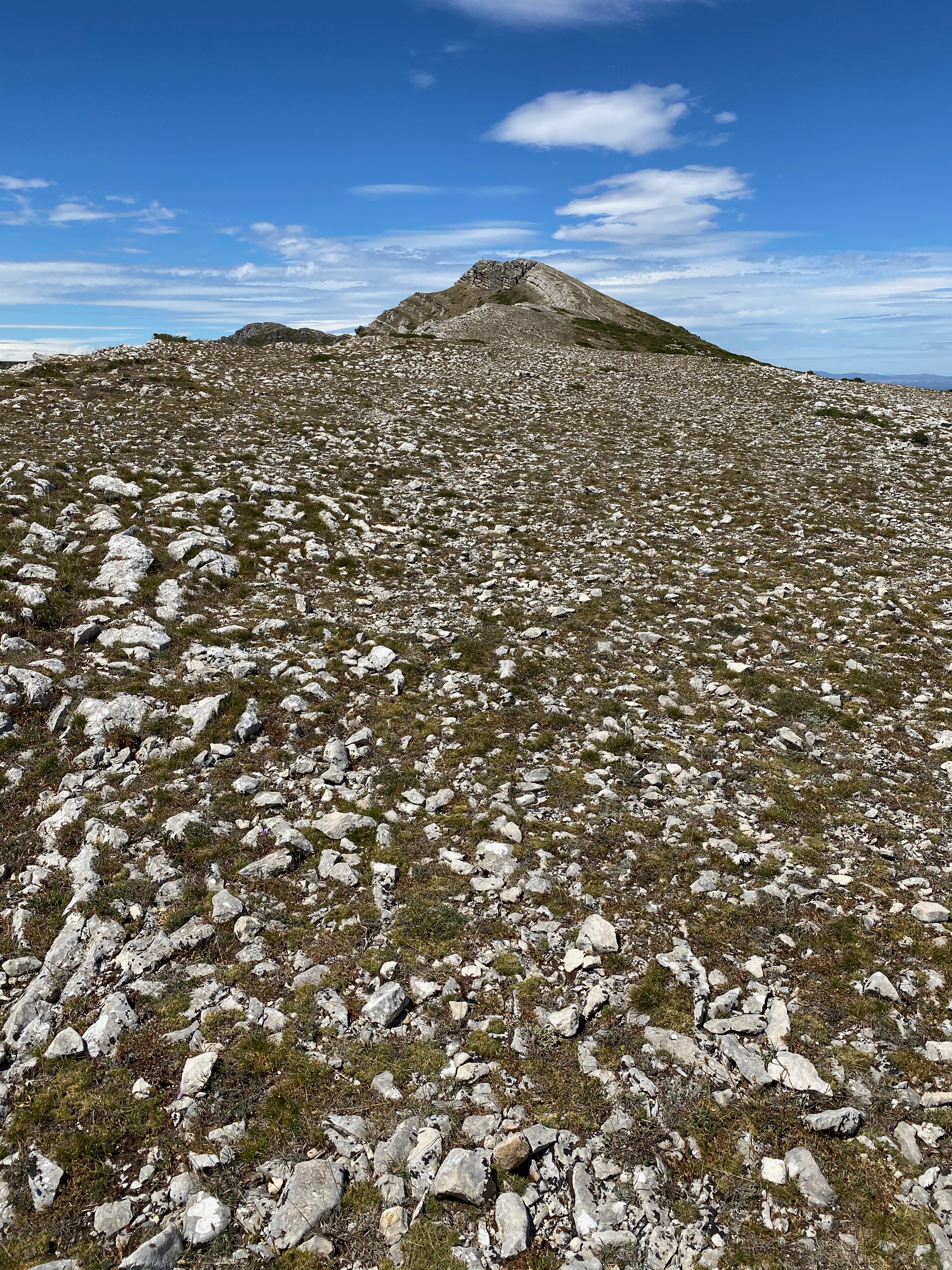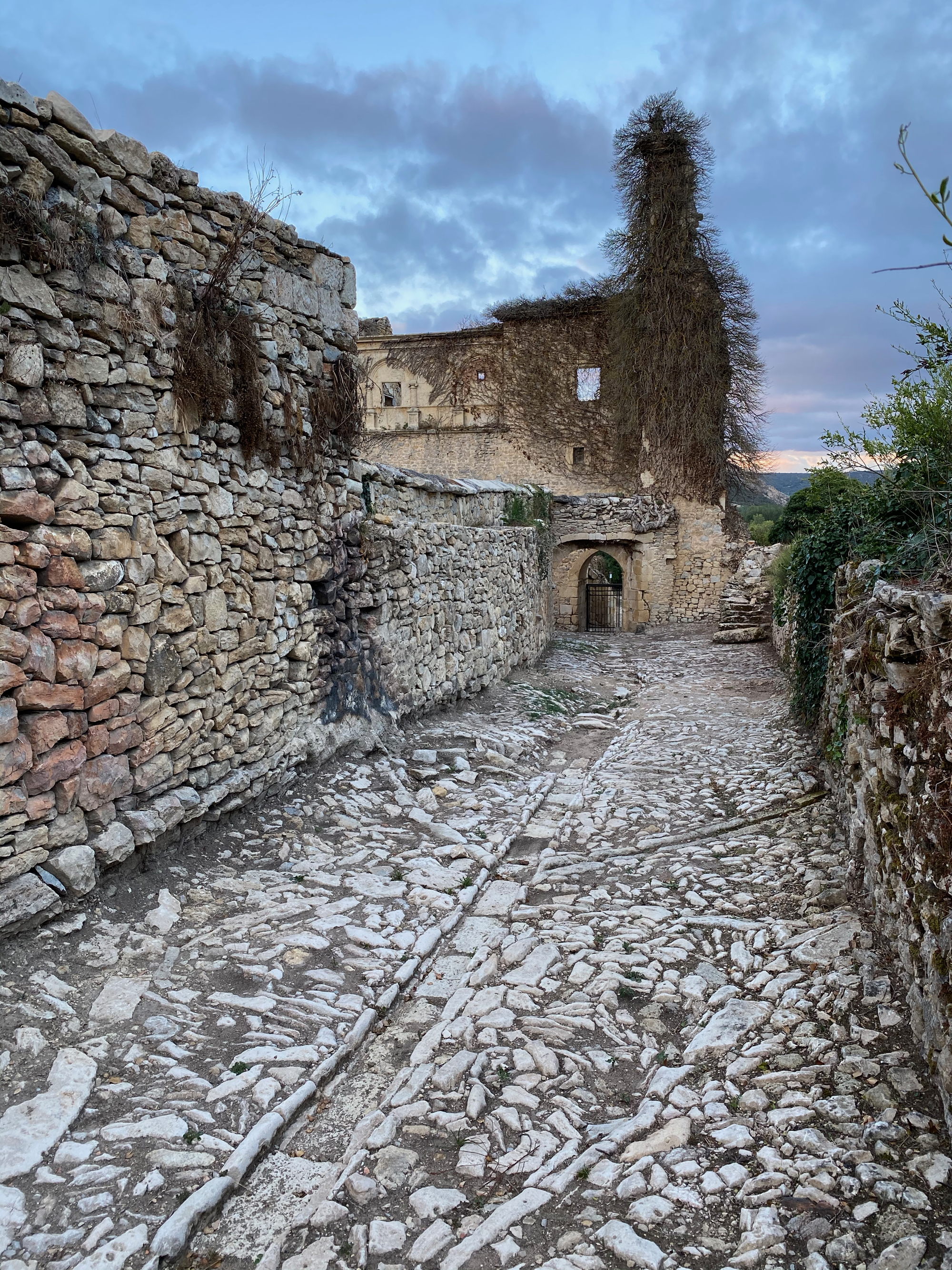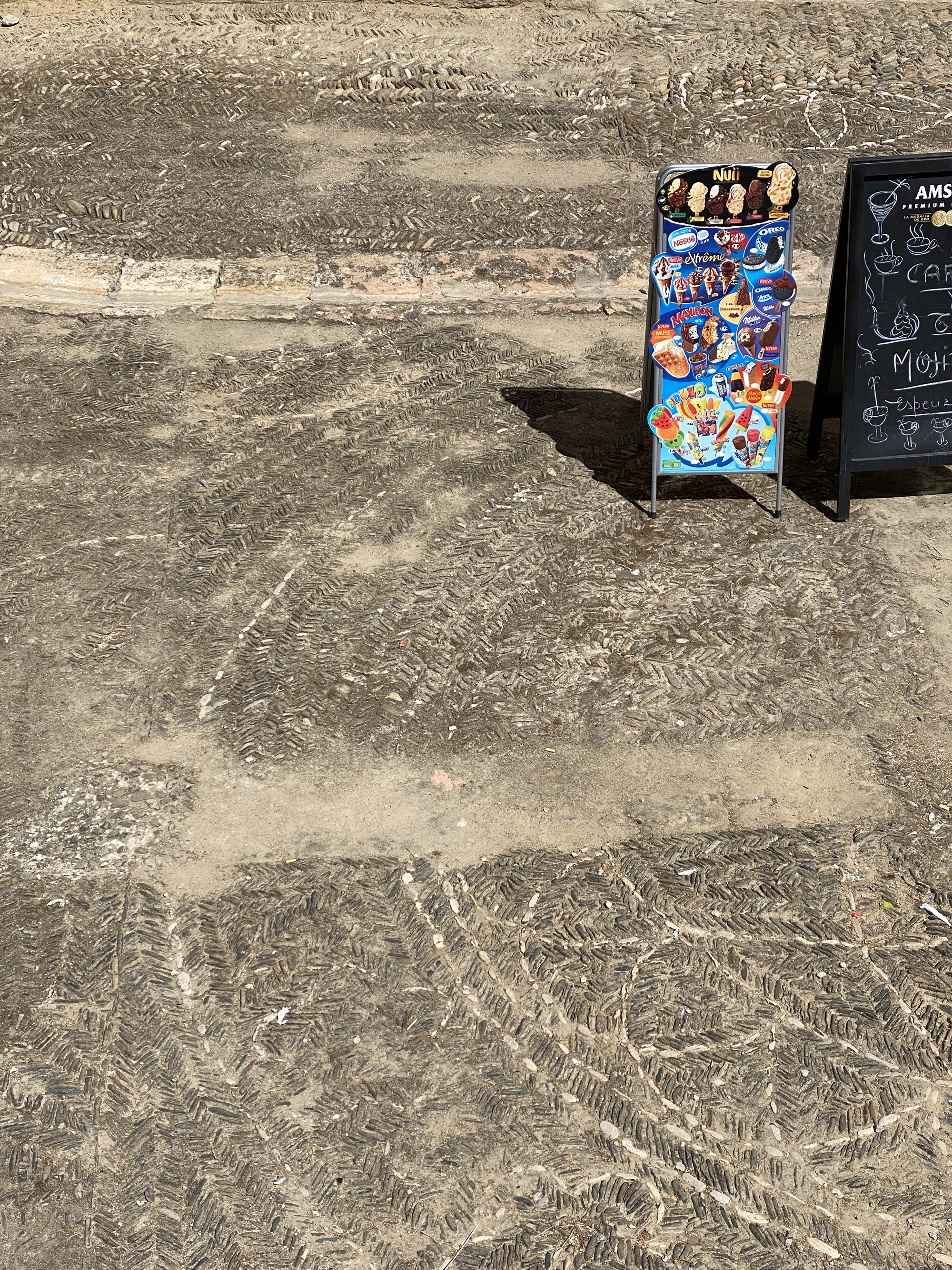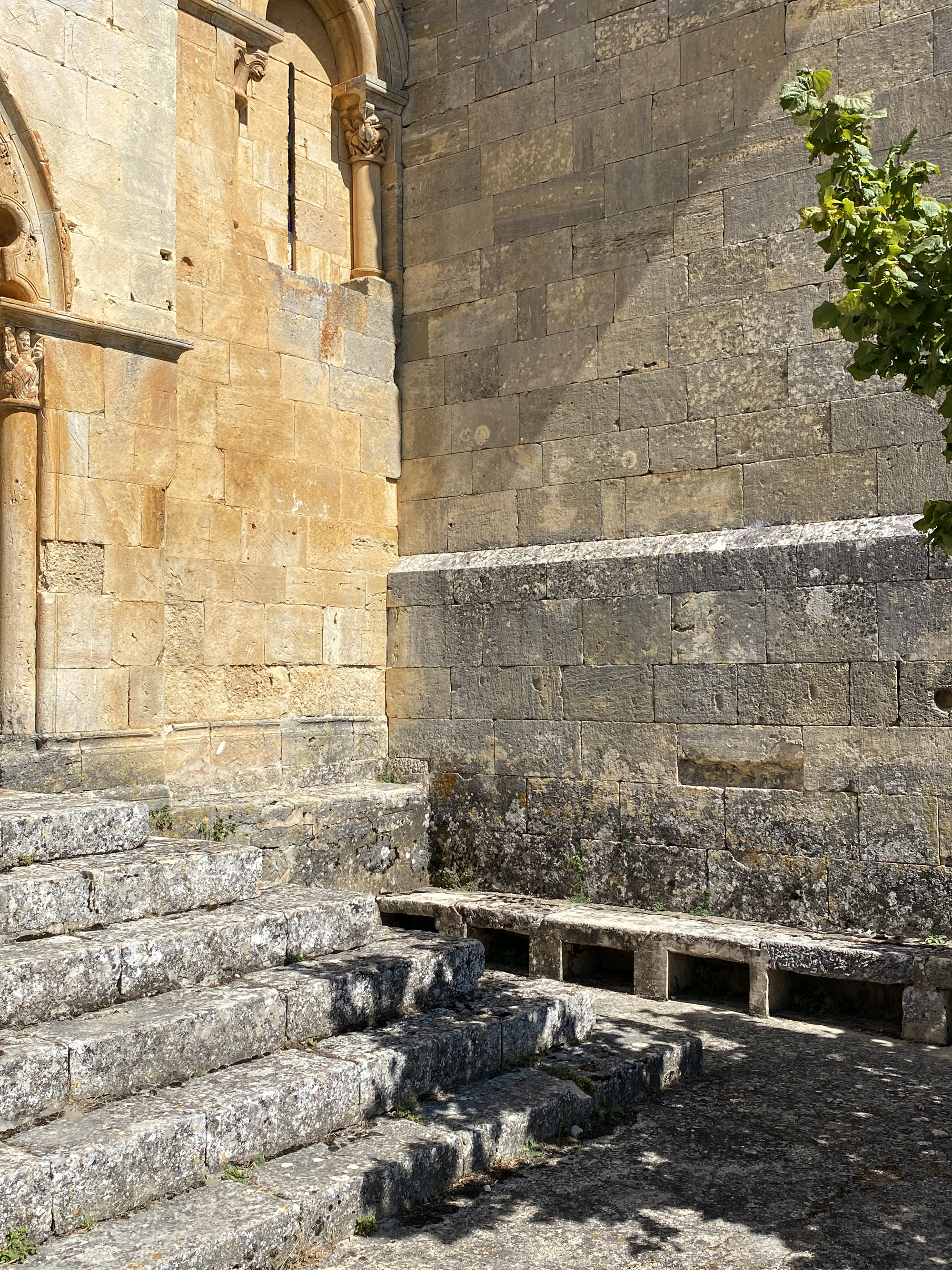1. Context
The project consists of the rehabilitation of a Castilian mansion from the s. XVI that had burned in a fire in 2011. Only the stone walls, the staircase with a vault and the voussoirs of the collapsed arches remained. The building had formerly been used as the residence of the prior of the Monastery of Oña.
2. Light as material
The north façade is buried by the unevenness of Calle Mayor, the ground floor was uninhabitable, without natural light or direct contact with the orchard on the south face.
The first intention of the project was to introduce this natural light that was lacking without disturbing the historic stone facades too much. It seemed to us that the best way to do this was through five skylights that cross the intermediate floors to the common areas on the ground floor. These skylights open onto two large atriums from where parallel stairs run; the original stone and a new steel and concrete one of the same width. This allows configuring a sequence of spaces on different levels, illuminated from above and framed by stone and concrete arches.
3. Dualities
The next intention was to form a project based on structural, material and spatial systems similar to the ruin that we had found, to generate that continuity with the pre-existing but clearly marking the subsequent interventions. The new elements that do not contain analogies with the originals are treated as light pieces of steel and wood, with systems that combine traction and compression as structural balance games. The constructive solutions have been raised following the maxim of Adolf Loos of the architect as a mason who knows Latin, in a constant dialogue with the workers of the region.
Atienza Maure Arquitectos is an architecture studio founded in 2018 by Alonso Atienza and Miguel Ángel Maure, based in Barcelona and Madrid. Both are architects graduated by the Polytechnic University of Madrid (ETSAM) with an academic year at the École Polytechnique Fédérale de Lausanne (EPFL), Switzerland.
Their projects are focused on new construction and rehabilitation at all scales. They perceive architecture from an eclectic and hedonistic continuity with tradition and local context, approaching it with the possibilities offered by contemporary construction techniques.
They understand that the architect should be, paraphrasing Loos and Coderch, a mason who has studied Latin with one foot tied to his land.
Other projects by Atienza Maure
